
Dr. Vandana Shiva
Dr. Vandana Shiva is trained as a Physicist and did her Ph.D. on the subject “Hidden Variables and Non-locality in Quantum Theory” from the University of Western Ontario in Canada. She later shifted to inter-disciplinary research in science, technology and environmental policy, which she carried out at the Indian Institute of Science and the Indian Institute of Management in Bangalore. In 1982, she founded an independent institute, the Research Foundation for Science, Technology and Ecology in Dehra Dun dedicated to high quality and independent research to address the most significant ecological and social issues of our times, in close partnership with local communities and social movements. In 1991, she founded Navdanya, a national movement to protect the diversity and integrity of living resources, especially native seed, the promotion of organic farming and fair trade. In 2004 she started Bija Vidyapeeth, an international college for sustainable living in Doon Valley in collaboration with Schumacher College, U.K. Dr. Shiva combines the sharp intellectual enquiry with courageous activism. Time Magazine identified Dr. Shiva as an environmental “hero” in 2003 and Asia Week has called her one of the five most powerful communicators of Asia. Forbes magazine in November 2010 has identified Dr. Vandana Shiva as one of the top Seven most Powerful Women on the Globe. Dr. Shiva has received honorary Doctorates from University of Paris, University of Western Ontario, University of Oslo and Connecticut College, University of Guelph. Among her many awards are the Alternative Nobel Prize (Right Livelihood Award, 1993), Order of the Golden Ark, Global 500 Award of UN and Earth Day International Award. Lennon ONO grant for peace award by Yoko Ono in 2009, Sydney Peace Prize in 2010, Doshi Bridgebuilder Award, Calgary Peace Prize and Thomas Merton Award in the year 2011,the Fukuoka Award and The Prism of Reason Award in 2012 , the Grifone d’Argento prize 2016 and The MIDORI Prize for Biodiversity 2016
Presented "Women lead the change from Violence to Non Violence, from greed to caring and sharing" : Video

Robyn Francis
Robyn Francis, permaculture pioneer, educator, designer, presenter and innovator has been working internationally for over three decades in 15 countries and diverse climates. She worked closely with Bill Mollison for many years including co-teaching the first permaculture course (PDC) in India with him in 1987. Among her many achievements she was the founder of Permaculture International, Permaculture College Australia, designer of NSW's first ecovillage (Jarlanbah), and co-initiator of the nationally accredited Permaculture Vocational Training in Australia. Francis balances international work with direct action in her local community and bioregion. Since 1994 she is based at Djanbung Gardens, purpose-designed Permaculture training centre in the lush subtropics of NSW, Australia. She is passionate about empowering people to become effective agents of change and mentoring a new generation of permaculture teachers and practitioners.

David Holmgren
David Holmgren is best known as the co-originator of the permaculture concept following the publication of Permaculture One in 1978. Within the growing and international permaculture movement, David is respected for his commitment to presenting ideas through practical projects and teaching by example that a permaculture way of living is a realistic, attractive and powerful alternative to dependant consumerism. As well as his involvement in the pragmatic side of permaculture, David is passionate about the philosophical and conceptual foundations for sustainability that are highlighted in his 2002 book, Permaculture: Principles and Pathways Beyond Sustainability. His 2009 book, Future Scenarios: how communities can adapt to peak oil and climate change outlines energy descent futures that could emerge over the next few decades. David's refreshing and unorthodox approach to the environmental issues of our time has been a major influence on the Transition Towns movement.
David is currently writing a new book set for release in early 2017. RetroSuburbia: a downshifter's guide to a resilient future is focussed on rebuilding the household economy, and the ongoing and incremental changes we can make to our built, biological and behavioural landscapes.
David and his partner Su Dennett live at Melliodora, a one-hectare property in central Victoria. It is one of Australia's best-documented permaculture demonstration sites.

Andy Goldring
Andy Goldring is the Chief Executive of the Permaculture Association, the UK charity that helps people to learn about and use permaculture, and host of the 12th International Permaculture Conference which was held in London in 2015. Andy develops networks. He initiated the 'LAND network' of demonstration projects, supported Permaculture Wales and Scotland to form, and was one of the founding members of the European Permaculture Network. Andy is part of a team that is developing the 'Permaculture Collaborative Laboratory', an experimental online approach to helping permaculture networks become more coherent and effective across the world. Andy is a council member of Ecolise, a 'meta-network', that brings together transition, permaculture, eco-villages and other community led sustainability initiatives across Europe. Andy lives in Leeds, Yorkshire, where he is a director of 'Leeds Love it Share it', which explores new approaches to urban regeneration, and chair of Leeds Permaculture Network. Andy cycles to work and enjoys his time off with friends and family in the garden.
Presented "Permaculture, sociocracy and changing the world" : Presentation

Narsanna Koppula
Narsanna Koppula is a permaculture pioneer in India. A lover of nature and environment, he was among the first Indians trained by Bill Mollison in the 1980s. With his mentor, Late Dr. Venkat, who has been his constant source of inspiration, they created the first permaculture farms in India and formed Permaculture Farmers Group across the country.
He founded Aranya Agricultural Alternatives with his wife, Padma, in 1999 with the aim to advocate permaculture principles and practices in India as well as all over the world. The NGO is the proud host of the 13th International Permaculture Convergence in November 2017.
They continuously work with farmers in the states of Telangana and Andhra Pradesh with the goal to empower rural communities through the teaching of natural resource management and permaculture design. A highly energetic teacher on the field, Narsanna has a wealth of knowledge on traditional Indian agricultural practices and he is extremely passionate about disseminating this knowledge to his students and farmers.
Presented "Aranya’s Permaculture initiatives" : Presentation

Tierra Martinez
From an early age, Tierra became interested in the conservation of nature, then started working as an educator and environmental interpreter in different places of Argentina. While he educated people within Environmental Education Program, he began to have a more intimate contact with nature working as a field naturalist in different environments. Later, he discovered Permaculture, which opened the possibility to a trip from where he decided never to return to the starting point. After traveling for more than a decade within a vast territory, Tierra has settled for five years in Argentina and South America, encouraging the creation of a movement that allows a vision beyond the power of the people and spread the seed of Permaculture. With over 15 years of experience in permaculture and more than 160 PDC conducted, Tierra is now focused on the creation of reference centers in different climates, ecosystems and cultures of Latin America and Caribbean Islands, enhancing the Latin Movement Permaculture and trying to manage a beautiful network of exchanging processes, students, programs, reference centers that empower and show the work that is being developed in different climates, ecosystems and cultures around Latin America. As a leader of the Latin American Permaculture Movement for Argentina, he is part of the organizing committee of the 4th and 5th Latin American Meeting of Permaculture and is part of the Support Group Meetings International Permaculture (IPC). Besides, Tierra is also the General Coordinator of next IPC 2020 Argentina.

Starhawk
Starhawk is the author or coauthor of thirteen books, including the classics The Spiral Dance, her visionary novel The Fifth Sacred Thing and its sequel, City of Refuge and her book on 'social permaculture': The Empowerment Manual: A Guide for Collaborative Groups. She wrote and co-directed the documentary Permaculture: The Growing Edge, and travels internationally, lecturing and teaching. Starhawk directs Earth Activist Training, teaching permaculture design grounded in spirit and with a focus on organizing and social permaculture.
She did her PDC with Penny Livingston-Stark in 1997 and holds a double diploma in teaching and design from the Permaculture Institute of North America. On her forty-acre ranch in Northern California, she integrates planned grazing perennial food forests and medicinal herbs in an evolving model of carbon ranching.
www.starhawk.org
www.earthactivisttraining.org
Presented "Permaculture activism and climate change" : Climate change statement
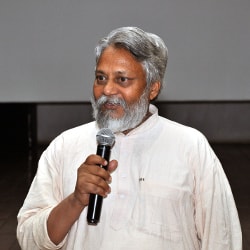
Sri Rajendra Singh
Rajendra Singh is a highly respected social activist working with water and river issues in India. Inspired by Mahatma Gandhi, in 1985 he went to live in rural Rajasthan, to introduce modern education and medicine there but soon the villagers made clear their primary need was for water. Harnessing the villagers’ capacities and their traditional wisdom, Johads (small earthen dams to trap water) were quickly built and the first fruits of these labours were realised in the very next rains when the nature began to flow again. The area dramatically transformed, progressively becoming more productive, and healthier. Rajendra and Tarun Bharat Sangh (TBS), the organization he chairs to further this work, began in each village by persuading the Village Council, a traditional body comprised of representatives from each household, where decisions are taken by consensus, to contribute labor and materials towards building and maintaining the johads. Over 30 years of working in that region, rivulets, dry for eighty years, were revived. He helped the villagers build several thousand Johads at strategic points. Major impacts of this sustained work have made the area rejuvenated with: Recharged aquifers, much improved ground water levels and more surface water; increased agricultural and milk production securing food supplies; thriving communities, especially for women and children; disciplined use of natural resources; ecological restoration. His application of this unique strategy of community-driven, decentralized water management & conservation has regenerated healthy, prosperous communities; strengthened democracy and political transparency; changed paradigm of water and climate change adaptation. Working with actual communities, Rajendra Singh demonstrates that using the inherent capacities of a community as well as introducing appropriate modern knowledge, strengthens a community’s capacity to adapt to existential threats such as climate change. Out of Rajasthan, Sri Rajendra Singh is actively involved with authorities of other states on water awareness and conservation issues.
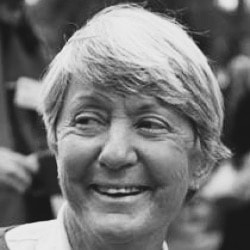
Rowe Morrow
I became aware half way through my PDC with Robyn Francis that permaculture was what had been lacking in my work in 'developing' countries such as India and Lesotho where I had worked in agriculture. I had had the experience coming up against the wall of conventional horticulture and destructive agriculture practices that were unable to solve the problems of food security and land degradation to which they had contributed so severely. I knew deeply that permaculture had applications beyond the situation of say, 20 people in a capitalist country converting to a more sustainable lifestyle. I was able to review my memories of poverty and powerlessness and recognise that permaculture can reverse these and its practices rebuild threatened and diminishing resources. such as water, soil and forests. I took permaculture with me to Viet Nam in those difficult post-war days. It provided the framework, through design, to allow the traditional knowledge and skills to be recovered and rebuild the country and its food supply. The success and my concern grew for similar national and local situations where people, for whatever reasons, were denied access to the knowledge that permaculture would give them. I passionately believe that as I have had the privilege learn, permaculture, is the RIGHT of all other people so they can buffer or transform their lives faced with capitalism and global warming. My present preoccupations and passions are to convert refugee camps into ecovillages which is necessary, humane and feasible; understand how to buffer the snow melt from glaciers to buy time for all farmers down stream; develop a curriculum and respect for the world's shepherds and their ecosystems; provide permaculture course materials for disaster planning for all communities worldwide; bring permaculture thinkers together for working on assuaging the accelerating problems of searise on the world's deltas. And I want to work with people, who want to work on these issues.
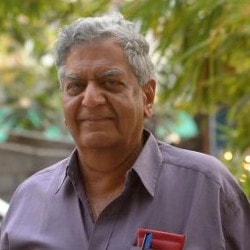
Vithal Rajan
Vithal Rajan, Officer, Order of Canada, BA Hons (McGill), PhD (London School of Economics), was founder President Permaculture Association of India, and founder chair, Deccan Development Society which published ‘Permaculture A Designer’s Manual’ in India. He was the First Executive Director of the Livelihood Awards Foundation, Sweden [the Alternative Nobel Prize], and a personal friend of Bill Mollison. He has worked in industry in Canada and India; as a mediator for the Church in Belfast in the 1970s; and later as a member of the founding faculty at the School of Peace Studies, University of Bradford, UK; as Chair of World Studies, International School of Geneva; as Director, WWF-International, Switzerland; as founding Councillor, World Future Council, London, Hamburg and Brussels. He founded several Indian NGOs. In 2006, he was made an Officer of the Order of Canada for life-long service to humanity.
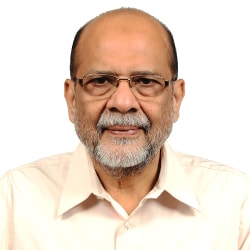
Prof. Sultan Ismail
Dr Sultan Ahmed Ismail, M.Sc., M.Phil., Ph.D., D.Sc., (9.10.1951) is Managing Director of the Ecoscience Research Foundation, a not-for profit organization, in Chennai. He was the Head of Zoology and later the Department of Biotechnology, The New College, Chennai. Has done extensive work (both research and applied) on ecology and environment, earthworms and organic inputs since 1978. He has been associated with several farmers and self-help groups promoting the concepts of ecology, sustainability, organic concepts, waste management, waste water treatment, etc. He was awarded the CASTME award for 1994-95 in the UK, the Arignar Anna Award by the Department of Environment of the Government of Tamil Nadu for 2005, and the Award of Excellence presented by His Excellency Governor of Jharkhand in Dec 2010. Classified as one among the “TOP 10” people of Tamil Nadu for 2013 by Anantha Vikathan he has traveled widely in India and abroad, with rich expertise in environmental issues. His book “The Earthworm Book” is popular among both academics and others interested in earthworms, while his coordinated “simple tasks great concepts” is a boon to science teachers and students with 100 life science experiments which any child can perform without a laboratory. His earthworm book has been translated in Tamil as well as in Chinese. He has published more than 70 papers in National and International Journals, guided 32 M.Phil students and 17 Ph.D, students.
Presented Soil health: an India earthworm’s eyeview" : Video / Presentation

Margarethe Holzer
Margarethe completed her Diploma Thesis at the Innsbruck University (Austria) with the topic: "Permaculture as a model for a sustainable structurally change of the society with special consideration of education for sustainable developement" in 2007. She is a founding member (2004) of the Permaculture-Academy in the Alpine Regions, and now teaching at the Academy. Collaborating with Rosemary Morrow, Margarethe has set up the first Permaculture Teachers Training courses in Austria. Member of the former European Permaculture-Council, and member of the working group EUPN-EUPC since 2015, Margarethe participated in the IPC’s in Croatia, Brazil, Malawi, Jordan, Cuba and the UK. She is taking care of fundraising activities for delegates and working with the organisation of scholarships for IPC since 2007. Besides, Margarethe is the coordinator of the IPCC (International-Permaculture-Convergence-Council) together with John Nzira. She handled the fundraising part for the Permaculture Project PORET in Zimbabwe (Director: Julious Piti) - aiming to set up two Kindergarten-buildings - which officially opened in April 2015. In addition, Margarethe does lectures about Permaculture for several organisations, and participates in the organisation of a monthly Permaculture-meeting with others in Innsbruck since 2005.
www.permakultur-akademie.com
www.internationalpermacultureconvergence.org
Presented "Permaculture: an open door to the world: a permaculture journey with the last 6 IPCs as key points" : Presentation
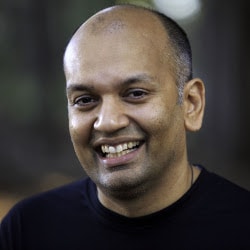
Nipun Mehta
Nipun Mehta is the founder of ServiceSpace, an incubator of projects that works at the intersection of volunteerism, technology and gift-economy. What started as an experiment with four friends in the Silicon Valley has now grown to a global ecosystem of over 500,000 members that has delivered millions of dollars in service for free. Nipun has received many awards, including the Jefferson Award for Public Service, Wavy Gravy's Humanitarian award, and Dalai Lama's Unsung Hero of Compassion. In 2015, President Barack Obama appointed him to a council on poverty and inequality. Nipun is routinely invited to share his message of "giftivism" to wide ranging audiences, from inner city youth in Memphis to academics in London to international dignitaries at the United Nations. He serves on the advisory boards of the Seva Foundation, the Dalai Lama Foundation, and Greater Good Science Center. Nipun's high-school goal was to either become a tennis-pro or a Himalayan Yogi. Instead, by the third year of his Computer Science and Philosophy degree at UC Berkeley, he started his software career at Sun Microsystems. Dissatisfied by the dot-com greed of the late 90s, Nipun went to a homeless shelter with three friends to "give with absolutely no strings attached." They ended up creating a website, and also an organization named ServiceSpace. In 2001, at the age of 25, Nipun quit his job to become a "full time volunteer." In January 2005, Nipun and Guri, his wife of six months, put everything aside to embark on an open-ended, unscripted walking pilgrimage in India, to "use our hands to do random acts of kindness, our heads to profile inspiring people, and our hearts to cultivate truth." Living on a dollar a day, eating wherever food was offered, sleeping wherever a flat surface was found, the couple walked 1000 kilometers before ending up at a retreat center, where they meditated for three months. Nipun's mission statement in life now reads: "Bring smiles in the world and stillness in my heart."
Padma Koppula
Padma Koppula is a committed development professional working in social and environmental sectors. She is the co-founder and CEO of Aranya Agricultural Alternatives, a 17 years old non-profit organisation that will be hosting the 13th International Permaculture Convergence in November 2017. She has gained enormous experience working with thousands of small and marginal farmers in the areas of sustainable agriculture/permanent agriculture and natural resource management (including watershed management and participatory irrigation management) besides offering farm advisory services. She firmly believes in communities empowerment, especially women, tribal and young farmers through capacity building, and support them in getting access to resources and taking ownership of their own situation.
She is eminent in bridging different government programs and helps to avail various benefits. She possesses strong training skills and continuously provide trainings to farmers, government employees and other enthusiasts in participatory irrigation management, farm advisory services & management, diversified crops, tree-based cropping systems and other eco-farming practices.
Through her work with Aranya Agricultural Alternatives, she facilitated the implementation of rainwater harvesting structures and plantation in 41,250 acres. She is also passionate about preservation and propagation of local and native seeds varieties and has supported the establishment of seed banks in many villages.
In addition, she holds different position to her credit including Director of Bodhi Educational Society, advisory member for Farmers Water Management Committees, farmer advisory services and consultant for governmental and non-governmental projects.
Presented "Aranya’s Permaculture initiatives" : Presentation
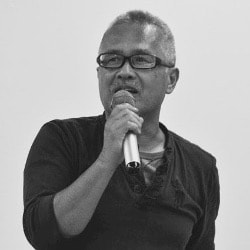
Kiyokazu Shidara
President of Permaculture Center of Japan, Kiyokazu Shidara did his PDC in 1995 with Max Lingdeger in Crystal Waters. He also got a diploma of Permaculture in the area of education in 1998. Since then, he organised more than 50 PDC for the last 20 years, and had more than 1000 graduates. Kiyokazu Shidara published two books on Permaculture ('Introduction to Permaculture Kitchen Garden' and 'Permaculture, Welcome to new sustainable farmer's Lifestyle'), and wrote articles on newspapers and magazines about both Permaculture and community movements.
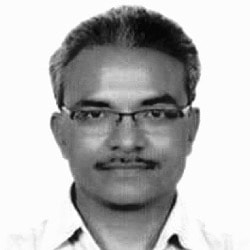
Prof. Mekala Lakshman
With a speacilization in Veterinary Pathology, Prof. Mekala Lakshman started his career as a Veterinary Assistant Surgeon in 1994, in the Department of Animal Husbandry (Andhra Pradesh), being involved in disease diagnosis. In 1999, he joined as an assistant professor involved in teaching of Undergraduate, Post Ggraduate and PhD students. In 2011, he obtained his PhD on Veterinary Pathology from the Sri Venkateswara Veterinary University (Tirupati). Until now, Prof Mekala Lakshman has gained a broad expertise in postmortem examination of livestock (hundreds of small ruminants, hundreds of large ruminants, tens in equines, dogs and thousands of avian species) and also in Electron Microscopy - sating thousands of samples which were examined and received from different parts of India (which includes Animal, Human, Plant, Pharma, and other Lab animal samples). Through his career, he accumulated a vast knowledge on the inter-relationship between Human, Animal and Crop, and the advantages of Permanent Agricultural Practices i.e., ancient farming systems coupled with animal integration along with application of developed eco-friendly advances in technology. Prof. Mekala Lakshman is Recipient of Padmasri IVSubba Rao Rythunestam award 2017.

Albert Bates
Albert Bates holds a B.A. from Maxwell and Newhouse Schools of Syracuse University (1969), LL.B. and J.D. degrees from New York Law School (1972), Dipl.P in permaculture design and Dipl.P in permaculture instruction from PINA (>50 full PDCs), certification in Horsemastership from Silvermine School (1965), Emergency Medicine (1973), Permaculture Design (1994), Edible Forest Design (2009), Regrarian Design (2016), and specialities in natural construction, finance, social governance, conflict transformation, and ecovillage design. He serves as visiting professor to Nanjing Agricultural University, Gaia University, and Gaia Education Associates. He is author of 16 books on history, ecology and the future, including The Biochar Solution (2010) and The Paris Agreement (2015). He is co-recipient of the first Right Livelihood Award (1980) for the work of his organization, Plenty, in preserving the cultures of indigenous peoples. He designs cool villages, ecodistricts and economies for ECO2, a COOL DESIGN company based in the Dominican Republic.
Presented "Climate Ecoforestry an the Cool Village" : Presentation

Manisha Lath Gupta
Manisha is a marketer-entrepreneur turned self-taught permaculture farmer. Motivated by a desire to feed her family with uncontaminated food, and to build a sustainable ecosystem, she converted 10 acres of barren land into a lush green food forest. She chanced upon permaculture in 2010, and learning its design principles and philosophy through books and online videos. Lack of information on planting patterns for North India meant that she had to experiment with plants, while remaining true to the principle of permaculture. As a woman practising permaculture in Haryana, she faced the challenge to educate and inspire an all-male farm team, to take a leap of faith and pursue a path contrary to everything they knew about farming. Today, Manisha's efforts are a source of awareness and inspiration for farmers in the region who are eager to adopt permaculture techniques. She has blogged her experiences and journey on www.aanandaa.com over the last 6 years.
Presented "Water management in alternating flood and drought conditions" : Presentation
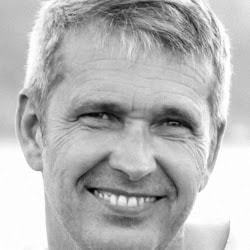
François Léger
Agronomist and Doctor in Ecology, François Léger is professor of Agroecology at AgroParisTech (Paris, France) and expert adviser in agro-environmental policies for the French government. His research initially focused on the sustainability of pastoral practices (in Mexico and France), and then on ways of reconciling agricultural production with the conservation of wild and domestic biodiversity. Throughout his career he worked in direct collaboration with farmers who refused the industrial model of agriculture. This research attitude leads him to work now on these small farms, combining ecological innovation (agroecological practices, permaculture ...), economic innovation (short food circuits ...), and social innovation (mutual aid and self- empowerment networks…) which demonstrate today that it is possible to live from small-scale farming with dignity and ethics, helping to build healthier, more equitable food systems that respect cultural and natural heritage.
Presented "Living on very small farms with Permaculture principles: examples of French microfarms combining ecological, social and technical intelligence" : Presentation

Beatriz Ramirez Cruz
Beatriz has been devoted to manual labor for a long time. This led her to work in different Mayan Women Cooperative Textiles in Guatemala (Solola region) and Mexico (Yucatan and Chiapas Region). She has been introduced to Permaculture approximately 12 years ago, through Tierra Martinez. Beatriz is now a Permaculture designer, with works on different Latin America and the Caribbean Islands climates, ecosystems and cultures. Recently she has been dedicated to work on creating a new education, being part of a movement of Alternative Education, with which she has Co-Designed The Course of Design of Educational Facilities based on Permaculture and Living Education, providing these courses in several countries and promoting the creation of these spaces. At the same time, Beatriz has been trained in various branches of Organic Architecture (Natural Patterns, Energy Flows, etc), the Natural Building (Construction in Bamboo, Reciprocal Structures, Raw Earth, etc) and Sacred Geometry (Sensitive Geometry and The Magic of Geometry), thereby achieving to build a solid foundation of theoretical and practical knowledges that she implements every day of her life, to which she is dedicated full time. Within the institute in the area of Organic Architecture and Natural Building and Social Permaculture, she is also in charge of works in several points that have to do with Nonviolent Communication, Dragon Dreaming, Consensus, Consent, Cafe World, Fish Ball, Open Space, etc. This activity has led her to be active in recent years in various parts of South America as Colombia, Ecuador, Bolivia, Peru, Chile, Uruguay and Argentina. Beatriz has taught about 50 Certified courses on Permaculture Design and she has been trained as a Master of Permaculture with several institutes. She has conducted several logistical Estate, Bioregional, National and International Meetings of Permaculture. She is currently the Co-Director of the Institute of Permaculture Na Lu'um for the area of Latin America, and also a co-founder member of the PermaneSer Alliance with which she develops projects in more than 10 countries.

Stuart R. Muir Wilson
Stuart grew up working on his grandfathers farm (Bill Mollison) where he worked for 11 years. Learning, practicing and teaching along the way, as well as managing WWOOFers on the farm, with his two brothers. This formed the foundation for his passion in sustainable architecture. Stuart finished his Master of Architecture degree with honors at the University of Tasmania in 2012. The honors thesis focused on integrating Permaculture, Architecture and Urban design, while helping out refugees, forming the portmanteau of permatecture. Stuart is currently a practicing Graduate Architect in Australia. He traveled to Brazil for International Permaculture Conference No. 8 where he went to the Amazon for an indigenous tour and learning experience. Continuing 2011 he went to Mexico for 4 months to teach 5 courses, teaching and consulting through out all of Mexico's climate regions. Stuart is going on to be nominated as young Australian of the year, continuing his grandfathers Legacy with the Right of Livli Hood Award (alternative nobel prize).
Presented "Implementing social and environmental justice with Permaculture for the most vulnerable citizens of Melbourne" : Presentation
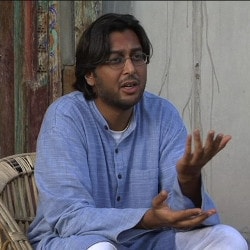
Manish Jain
Manish Jain is deeply committed to regenerating our diverse knowledge systems and cultural imaginations. He has served for the past 17 years as Coordinator and Co-Founder of Shikshantar: The Peoples’ Institute for Rethinking Education and Development based in Udaipur, India and is co-founder of the Swaraj University, Creativity Adda, Learning Societies Unconference, Walkouts-Walkon network, and Udaipur as a Learning City in India. He is a featured speaker/advisory member of the Economics of Happiness network for localization. He recently helped to launch the Ecoversities Network. He has edited several books on Vimukt Shiksha (liberating learning) on themes such as learning societies, unlearning, gift culture, community media, and tools for deep dialogue. Prior to this, Manish worked as one of the principal team members of the UNESCO Learning Without Frontiers global initiative. He has also been a consultant to UNICEF, World Bank, USAID in Africa, South Asia and former Soviet Union. Manish also worked as an investment banker with Morgan Stanley. He has been trying to unlearn his Master’s degree in Education from Harvard University and a B.A. in Economics, International Development and Political Philosophy from Brown University. He and his wife Vidhi have been unschooling themselves with their 13 year old daughter, Kanku. Manish is passionate about urban organic farming, filmmaking, simulation gaming, bicycling, group facilitation and slow food cooking.

Rebecca Ellis
Rebecca Ellis is a permaculture practitioner and a PhD candidate at Western University in London, Ontario, Canada. In 2010 she attended an Earth Activist Training PDC course with Starhawk and has enthusiastically practiced and promoted permaculture in her community ever since. Rebecca has an M.A. in Socio-cultural Anthropology from Western University. Currently she is PhD candidate in Human Geography at Western University. Her PhD research is focused on the relationship between people and bees in cities. Rebecca sits on the Board of Directors of London Cycle Link and is a founding member of the Squeaky Wheels Bike Kitchen. She is an active member of Friends of Urban Agriculture and the Carolinian Forest Garden Guild. Rebecca maintains the Permaculture for the People blog and is an environmental and social justice activist. In her free time, she is a small-scale beekeeper and maintains an extensive urban permaculture backyard.
www.permacultureforthepeople.org
Presented "Bees as allies: co-creating farms and gardens with bees" : Presentation

Christopher Nesbitt
Christopher Nesbitt has lived in Belize Central America for 31 years. For the last 28 years he has been a farmer on a piece of severely degraded former citrus and cattle land. It is now a stacked polyculture of around 500 species of plants. From 1997-2004 he was the director of the Toledo Cacao Growers, where he was working on issues from organic and fairtrade certification to grant writing for capacity building. He built up the farmers association from 200 members to over 750. In 2004 he formed Maya Mountain Research Farm, a registered NGO, on the land he farms, to train people in permaculture, biomimicry, agroecology and renewable energy. MMRF also works in energy poverty, especially rural electrical systems off grid for schools and water pumping. He has installed numerous photovoltaic systems in schools and clinics in indigenous communities and in 10 protected areas within Belize.
Presented “Permaculture as a tool for climate change mitigation and poverty alleviation": Presentation
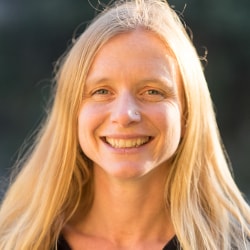
Raya Cole
Raya Cole is dedicated to holistic, integrated permaculture design, social justice, and mentoring students. She believes in the importance of learning old traditional ways from local people of how to care for and live gently on the Earth; and enjoys investigating new ideas and adventures in appropriate technologies. Raya is the coordinator and co teacher of the Living Ecology internship program, which aids the work of Aranya Agricultural Alternatives, an effective development organization in India. She teaches the process of permaculture consultancy to students as they work with a poor village farmer in implementing a transformational functional farm design. Her work provides crucial examples of alternatives to GMO monocropping, and solutions to drought, dry wells, malnutrition and farmer suicides which are big issues in that area. Raya brings her skills and experience in working with groups, communities and diverse cultures to the internship, deepening the sociocultural aspect of the program. Raya teaches wilderness, primitive and nature awareness skills which are essential to observation, learning from ecological systems and living lightly on the land. She is an herbalist who grows and wildcrafts herbs for her medicinal herbal product business, Simply Being Botanicals. She teaches herbal medicine workshops. Raya provides permaculture consultancy and implementation on farms in the United States, Costa Rica and India. She has developed two of her own farms with permaculture principles in California and has just begun the fun of designing her third farm in the Sierra foothills.
www.livingecology.org
www.facebook.com/Simply-Being-Botanical-454327104907667/
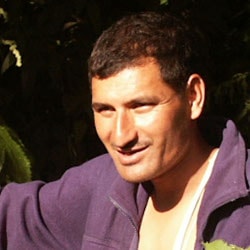
Bhuwan Khadka
Bhuwan is a farmer from Gumi village in Eastern Surkhet district. He started his permaculture journey with the Jajarkot Permaculture Program with Chris Evans in 1993 as a livestock "barefoot" vet. By 2001 he was assistant coordinator of JPP's programs in Surkhet, part of a 4-district, 65-village network with 12000 farmer-members. He then co-founded a spin-off village NGO, the Himalayan Permaculture Group which he helped to develop in remote areas of Surkhet and Humla districts. In 2010 he then co-founded a further spin-off, the Himalayan Permaculture Centre, where he now works as Executive Officer. HPC works in 32 villages of Surkhet & Humla in areas of food security (agro-ecological regenerative systems), health, education, livelihoods and capacity building. His experience has seen him need to coordinate permaculture activities throughout the Maoist insurgency in Nepal between 1996 to 2006, travelling between the Maoist-controlled villages and government controlled district centres, at times when no other (I)NGOs were allowed into rural areas.
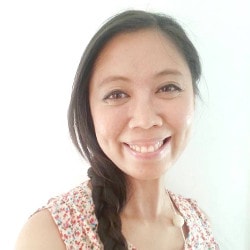
Sarah Queblatin
Sarah Queblatin is a regenerative solutions practitioner weaving experiences in environmental education, cultural heritage, peacebuilding, and humanitarian assistance with various organisations. Originally a psycho-social support consultant providing arts relief for disasters and conflict survivors, Sarah saw firsthand the increasing vulnerability of communities after every aftermath of emergencies she has witnessed through the years. This has motivated her to use regenerative approaches through ecovillage and permaculture design for humanitarian assistance through Green Releaf, a local initiative she started. She is grateful to learn about permaculture from Bert Peeters of the Philippine Permaculture Association, Steve Cran from Green Warrior Permaculture, and with Rosemary (Rowe) Morrow on Permaculture in Precarious Places with the Blue Mountains Permaculture Institute. She is currently assisting in the development of materials on permaculture for refugees and disaster settings with Rowe and a network of practitioners. Since 2015, she worked with the Global Ecovillage Network's participation at the United Nations as its outgoing Advocacy coordinator and continues on as a consultant while helping form its emerging program on humanitarian assistance called EmerGENcies. Sarah’s current projects in the Philippines include ecosystem restoration and DRR projects in supertyphoon affected communities. Her team is also responding with regenerative solutions for IDPs displaced from the besieged city of Marawi after ISIS attacks in May of this year. With supporters such as H.H. the 14th Dalai Lama and global advocacy campaigns for her work, Sarah continues to explore innovations for the new story in times of great transitions.
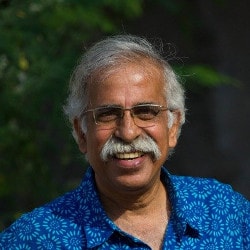
Dr. Claude Alvares
Claude Alvares is Director of the Organic Farming Association of India, editor of "The Organic Farming Reader" and the "Organic Farming Sourcebook." He was secretary of OFAI for six years. He was also instrumental in setting up the PGS Organic Council and PGS organic certification in the country.
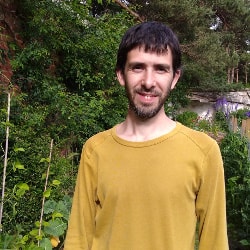
Paulo Bessa
Paulo has been designing food forests and experiencing community living, for more than 10 years. He established permaculture projects in Iceland, Austria, Portugal and Scotland. In Iceland, he pioneered a food forest far north in an intentional community, teaching hundred of students, and launching his line of organic herb cosmetics. In Portugal, he planted food forests with more than 250 edible species, addressing the topic of climate change and beginning a conservation project of endangered plant species. In Austria, he designed a food self-sufficiency project for 25 people in a meditation center. He currently lives with his family in Findhorn ecovillage. He loves to share seeds and storytelling the successes and failures of his community and permaculture adventures.
www.greenspotpermaculture.blogspot.com
Presented "Designing pioneering food forests in Iceland, Austria and Portugal" : Presentation

Amani Dagher
Amani is interested in projects that develop farmers' capacities in sustainable agricultural practices with the aim of reducing pesticide use in crop systems and improving their livelihood. After completing her PDC with SOILS in 2015, she first collaborated with the NGO on designing and conducting agro-ecology workshops with farmers. She is now a member and project coordinator at SOILS where she implemented a pilot project for solid waste management and a sustainable micro-garden project in Syrian refugee camps. She co-developed a manual on agro-ecology and a fully illustrated booklet on micro-gardening in the camps. Amani manages an apple orchard in North Lebanon at an altitude of 1,500 m, converted to organic agriculture 3 years ago. She previously worked on the cultivation and valorization of aromatic plants in an agro-development project. She also worked as an environmental scientist in a consulting firm. Amani holds two master's degrees in environment and sustainable agriculture.
www.soils-permaculture-lebanon.com
Presented "Implementing micro gardens in Syrian refugee camps in Lebanon" : Presentation
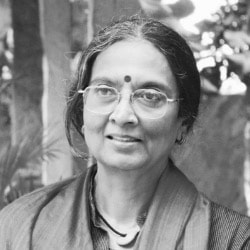
Seetha Ananthavisan
Seetha Ananthasivan is founder trustee of K.N.A.Foundation and Bhoomi College. Her areas of interest include Explorations in inner and outer ecology, Ecological Education, and working with community building and management processes based on principles of Nature. She is the editor of the Bhoomi magazine and the Founder of Aastha Foundation and Prakriya Green Wisdom School.

Eston Mgala
Eston Mgala is a permaculturist who lives in Malawi coming from passion in environment and Natural resource Management and sustainable community development. Since trained in permaculture by Kristof Nordin and Rosemary Marrow, Eston has taken permaculture as a life career and is the co-founder of the Kusamala Institute of Agriculture and Ecology which was born from from IPC9. He has worked on the development of the organization for 8 years and now working under ECPermaculture consultancy as a freelance permaculture consultant who helps local and international organisations who are working with people both in rural and urban areas. The work Eston does is crosscutting in conservation, resiliency, climate smart sustainable agriculture, food and nutrition security, environment and natural resource management, community resource mapping, regenerative design, agroforestry, reforestation. He believes the way to solve many of the challenges we are facing is to respect and understand the language of the environment through listening to the language of the land, plants, water, animals and people.
Presented "Permaculture as a design solution for healthy leaving" : Presentation
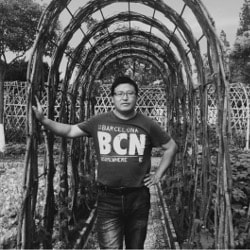
Yuan Qinghua
Yuan Qinghua holds Master’s degree in Agriculture. He has committed himself to practicing and spreading ecological agricultural technologies for more than a decade. In 2003, he started to encourage and to organize peasants to study ecological farming technologies in a rural NGO. Later, he systematically studied the theories and technologies of ecological agriculture in Thailand for a year. In 2010, he was granted the Permaculture Design Certificate (PDC) in Hong Kong. He then started to practice and spread Permaculture in Mainland China. For the past 10 years, he has not only organized sustainable workshops of Permaculture for many times, but has also participated in the designs and works of ecological construction programs, composting toilet programs, and urban garden constructions. Yuan Qinghua is one of the co-founders of Little Donkey Farm in Beijing, which is the first CSA farm of Mainland China. He still shares partnership of the Farm. In 2017, he has newly established a social enterprise in Shanghai, i.e. Our Way to Permaculture (Dao Nong/道侬in Chinese). Seeding the City (Cheng Zhong Yang 城中秧 in Chinese) is the core brand of the Enterprise. The mission of the Enterprise is to introduce Permaculture to urban communities. Gradually, the practices of Permaculture can take root in cities like Shanghai. Programs of Micro Transformation of Urban Community are in progress.
Presented "Revive urban lands in Chinese modern cities, according to the principles of Permaculture" : Presentation

Mugove Walter Nyika
Environment to listen, encourage and share with everyone, especially the children to be empowered to look after themselves and the environment for the common good. Over the last twenty years Walter has played a central role in the development of the integrated land-use design (ILUD) process as a tool for whole school land design and the establishment of school food forests. He is also an Eco-village Design Education (EDE) facilitator and a member of the Global Eco-village Network (GEN) Africa Advisory Council. Walter has enjoyed reconnecting with nature, culture and the past and sharing on ecologically sustainable land-use with school communities and numerous government and non-government agencies in Zimbabwe, Malawi, Zambia, Kenya, Uganda and Tanzania. He facilitated the founding of the Regional SCOPE (ReSCOPE) Programme in 2007 and the hosting of the International Permaculture Convergence in 2009 in Malawi. Walter is the Founding President of the Friends of International Permaculture Convergences (FIPC). The focus of his work is based on valuing the young people as the custodians of the future and helping them to participate in building resilient communities.
Presented "Permaculture as a tool for shaping the future that we want - working with young people in schools": Presentation

Courtney Brooke
Courtney Brooke currently lives part time in New Zealand and part-time in the United States, ‘cross-pollinating’ the permaculture movement between the South Island and the South-eastern Appalachia mountains. She co-organizes, coordinates and tutors Permaculture Design Courses with The Institute of Earthcare Education Aotearoa (New Zealand) & The School of Integrated Living (USA), and holds a B.S. in Ecology and Anthropology of Human Food Systems.
Courtney is an experiential educator with a passion for creating cultural health with living hearths as the heartbeat of change. She teaches nature-based curriculum through experiential eduation to children, young adults and adults. At the moment, she is in pursuit of her Professional Diploma in Permaculture Education with Permaculture Institute North America (P.I.N.A).

Dr. Marty Branagan
Dr. Marty Branagan is a qualified Permaculture Consultant (Permaculture Institute, Nimbin NSW) and the Convenor of Peace Studies at the University of New England, teaching a range of units including ‘Active Resistance: Contemporary Nonviolence’ and a new unit ‘Creating Cultures of Peace’, which he created. He initiated the Master of Environmental Advocacy degree (now Master of Arts [Environmental Advocacy]) and the annual Nonviolence Film Festival, now in its ninth year. His research interests include nonviolence developments, artistic activism and Australian eco-pax movements. In 2013 he released a book Global Warming, Militarism and Nonviolence: The Art of Active Resistance (Palgrave Macmillan), informed by his long-term experiences in nonviolent civil disobedience in environmental, peace and social justice campaigns. Among the conferences he has organized was a 2013 UNE conference ‘Mining in a Sustainable World’, which resulted in a special edition of the International Journal of Rural Law and Policy (see http://epress.lib.uts.edu.au/journals/index.php/ijrlp/issue/view/303).
Presented "The overlooked role of women in environmental non violent action" : Presentation
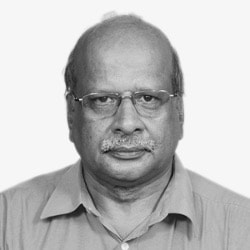
KS Gopal
Mr. K.S. Gopal Is Director of the Centre for Environment Concerns, Hyderabad. He has three decades of experience in rural development, especially in low rainfall drought prone and was Founder Director of Deccan Development Society. His academic background is an MBA with further specialization in International Trade, was Faculty Member at the Administrative Staff College of India and Scholar in Residence at Tata Institute of Social Sciences, Mumbai. He was Member of Central Employment Guarantee Council and Chair of the Committee on Works on Individual Lands in MGNREGS. CEC has innovated first of its kind moisture centric water at the plant root technology that has won two global awards in the first year of its market introduction.
Presented "Agriculture rejuvenation in drought prone areas: moisture at the zone and microbes as soil enrichment": Presentation
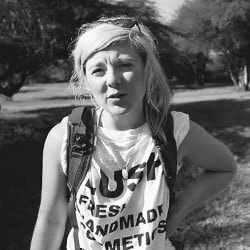
Cadi Pink
After gaining the opportunity to conduct a research study on the Ghanaian cocoa market and the benefits of permaculture designs for cocoa farmers, Cadi joined the sourcing team at Lush. This is where the Company sources ingredients from around the world for cosmetics production. Cadi has since been the coordinator for their Sustainable Lush Fund, a fund which invests in ecological agriculture and regenerative practices around the world – supporting the creation of demonstration sites, education hubs and capacity building to support eco-farming groups.
With an educational background in Physical Geography (BSc) and Climate Change and Sustainable Development (MSc), Cadi has also done her PDC with the Permaculture Research Institute Kenya in 2014.
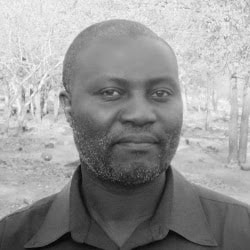
Julious Piti
Julious Piti is a permaculture teacher, designer and trainer, and conflict facilitator. He is a founding member of the Chikukwa Ecological Land Use Community Trust (CELUCT) and the Director of PORET, an organization formed to support farmers in the low rainfall area of Chimanimani District, Chaseyama, Zimbabwe where he now lives, by replicating the strategies of CELUCT. In 2009 Julious was hired by Global Resource Alliance, an NGO based in Ojai CA, to facilitate a permaculture design project for a village of 5000 on the shores of Lake Victoria, Tanzania, featured in the film, From the Mara Soil. Film producer with Gillian Leahy and Terry Leahy, author of Permaculture Strategy for the South African Villages (University of Newcastle, Australia), produced documentary film about Chikukwa, Julious was also a presenter at the International Permaculture Convergences in Brazil, Africa, and Jordan, and has been invited to teach Permaculture Design Course for International Development & Social Entrepreneurship at Quail Springs Learning Oasis and Permaculture Farm in California United State, July 2012.
www.thechikukwaproject.com
www.poret-zimbabwe.org
Presented "Agro-ecology work as a social responsibility in Zimbabwe": Presentation
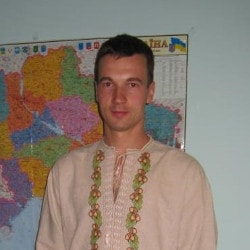
Pavlo Ardanov
Pavlo is a co-founder and the head of the NGO “Permaculture in Ukraine”. His work includes teaching, permaculture projects management and networking. Currently he is part of running the international project “Permaculture for Farms” in collaboration with the permaculture organizations from Slovakia, Czech Republic, Poland, and Hungary. The project includes the 3 day conference on permaculture farming, farm visits and production of the short films about each farm visited. Pavlo is also initiating the academic research project in collaboration with the Coventry University on design of plant polycultures, database of crop ecological traits and free online software for designing custom-tailored polycultures.

Hommaya Gurung
Hommaya started as a weaver in the Jajarkot Permaculture Program in 1992 when she was 16, and as well as becoming an expert technician in organic farming, agro-forestry and land design, went on to specialise in women's health, studying about local herbs and their use and ways of using and growing them. She was an active member of JPP and it's spin-off Himalayan Permaculture Group, and is currently a top-level "barefoot consultant" for HPC, advising them on their women's health programs and facilitating health trainings and women's health camps in Humla and Surkhet, while also providing women's health and organic farming support for (I)NGOs and community groups in other parts of Nepal, including earthquake-affected regions.

Freedom Cole
Freedom Cole is a Vedic scholar practicing Jyotisa and Ayurveda. He has a background in the cultivation of herbs and trees in Ayurveda and their production and usage as medicines. His present research is integrating mental health treatment from Ayurveda into modern clinical practice. Freedom lives on a homestead farm with his wife, Raya Cole, who leads the international permaculture aid internship at Aranya Agricultural Alternatives.
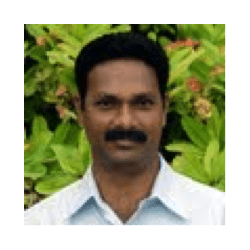
Subhash Chandra Reddy
Subhash Chandra Reddy is a humanitarian, nature lover and a social worker who has committed his life majorly for the cause of water resource conservation as a part of his contribution to the greater good of earth and mankind as a whole. SMARAN an environmental & developmental organization working for the community welfare since 1997 with a mission to promote natural resource base livelihoods for poor and rural communities, to protect, manage the environment and natural resources with major emphasis on water. Presently operational in the areas of Hyderabad, Ranga Reddy, Medak, Nalgonda Districts of Telangana. SMARAN till day has undertaken Micro watershed development, Nursery raising, compost making, tanks and checkdams renovation in rural areas benefitting hundreds of farmers, conducted Save Grain campaigns helping farmers manage their produce/ yield. promoting rural women livelihood activities like tailoring & household enterprises, small & marginal farmers, agricultural laborers providing them alternative solutions to check migration to urban areas for employment due to lack of sufficient water resources. For past eight years his efforts are more on replenishing depleting ground water table mainly in Hyderabad city and surrounding districts. He found rampant use of bore wells with increasing depth since 30 years has depleted deep aquifer water beyond natural recharge and existing methods. After visiting several cities in India, he focussed on a method called IBW (Inverse Bore well) Rain water harvesting (RWH) channelising roof top & selective surface area rain water which is site specific to recharge deep aquifers. Subhash Reddy promotes, brings awareness to the City communities and Rural farmers about sustaining their bore wells life and yield. So far since ten years around 1000 bore wells after verifying their feasibility which are abandoned, defunct / not in use are replenished. A Rain water structure is not mere structure but a child with life for him, customizing it site, need specifically and his cause committed construction undertaken depicts his deeper connections to the cosmic element of the earth and his inner seeking. Improving ground water table quantity & quality, sustainable underground water management works, utilising existing infrastructure in implementing economic RWH solutions towards ground water source protection, balancing and replenishment he takes honest and humble steps of action to actualize his vision of a fresh water resource rich earth.

Penny Livingston
25 years and has extensive experience in all phases of ecologically sound design and construction as well as the use of natural non-toxic building materials. She specializes in site planning and the design. Penny co-manages Commonweal Garden, a 17-acre organic permaculture educational botanical garden on the Northern California coast. Penny co-created the Ecological Design Program and its curriculum at the San Francisco Institute of Architecture, co-created the Permaculture Program at Occidental Arts and Ecology Center with Brock Dolman and she co-founded the West Marin Grower Group, the West Marin Farmer Market, and the Community Land Trust Association of Marin. She has worked with the Marin County Community Development Agency and Planning Department to develop recommendations on sustainability for updating the Community Plan. She is currently serving on the Marin County Building Appeals Board after being unanimously approved by the Marin County Supervisors. She has been featured in the following films: Symphony of the Soil by Lily Films and Deborah Koons Garcia, 2012: A Time forChange by Joao Amorim and Daniel Pinchbeck and Permaculture: The Growing Edge by Belili Films and Starhawk.
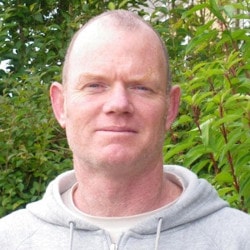
Chris Evans
Chris has lived and worked in Nepal since 1985, co-founding the Jajarkot Permaculture Project, which successfully spread new ideas in line with existing cultural traditions. Chris started his career as a VSO volunteer in a community forestry programme in Nepal after graduating in Forestry in the UK. Based in the remote western district of Jajarkot, he quickly realised the shortfalls of international development and so in 1988, when he came across the concept of Permaculture, he embarked on an ambitious alternative. Starting with a local friend, £500 and an acre of degraded farmland in the district centre of Jajarkot he founded a demonstration and training centre which grew organically into the Jajarkot Permaculture Programme (JPP), a diverse array of projects spanning 4 districts, 65 villages, 8 resource centres (working farms), 120 staff and volunteers, and a membership of 12,000 farmers. He stayed with the JPP until 2001 when he started to work with community groups which were spawned from the original programme. In 2001 he co-published the Farmers' Handbook in Nepali, a compendium of over 40 farmer-friendly techniques and approaches based on best practice learned in Nepal, but applicable globally. He directed the Nepal programmes for a UK charity from 2002 to 2008, working in the districts of Surkhet and Humla, one of the remotest and most challenging areas of the country. He currently works with a 3rd generation progeny of the JPP, the Himalayan Permaculture Centre (HPC). Beside his grass-roots experience in Nepal, Chris has taught permaculture in the UK, Europe, India, U.S.A. and Mexico. He is also a UK assessment level tutor for apprentices working towards their diploma in applied permaculture design. Chris lives at Waterloo Farm in north Herefordshire with his partner Looby and daughters Shanti and Teya. There, he is co-owner/director of Applewood Permaculture Centre, a demonstration, training and resource centre promoting regenerative landscapes, livelihoods and lifestyles.

Linda Kabaira
Linda is a graduate forester and environmentalist who holds a three-year Forestry and a four-year BSc (Hons) Geography and Environmental studies Degree, an MSc in development studies and currently studying a PhD in sustainability. She currently serves as the national Coordinator for Schools and colleges permaculture – SCOPE Zimbabwe. She is responsible for taking overall charge of the planning, budgeting and implementation of permaculture activities with children and youth in Zimbabwe. She is also involved with female youth nutrition enhancement permaculture gardening project in Western Zambia. Before joining SCOPE in February 2012, she had spent 10 years working with international NGOs on food security and livelihood development targeting vulnerable households, woman and children. She has held various positions in both implementation and managerial level in the field of natural resources management, agriculture, land use planning and design, mainstreaming HIV/AIDS and child protection issues. She attended a Gaia education weeklong permaculture training as part of the Ecovillage design education course in South Africa (2012) and later attended a permaculture design course in Ethiopia in 2013. She strongly resonates with practical based approaches that focus on addressing people's daily challenges. She has dedicated and committed her life to work with grassroots groups of women, youth and children through environmental activism, education and training of sustainable practices focused on water, food, energy and nutrition security. Linda also serves as a Global Ecovillage Network Ambassador for Zimbabwe since December 2012. She sits on the GEN Africa Council. Linda also serves as a Climate reality leader; a role she has taken up from March 2014.
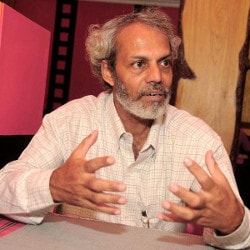
Dr. Debal Deb
Debal Deb is biologist, with doctorate in ecology from Calcutta University. He conducted post-doctoral research in human ecology of estuarine resource use at the Indian Institute of Science, Bangalore (1988), and in ecological economics at University of California – Berkeley, as Ford Foundation Fellow (2001) and Fulbright Fellow (2009). Deb currently serves as guest faculty at the TISS (in environmental economics), B R Ambedkar University, New Delhi (in political ecology), as a visiting faculty at SIT/ World Learning India, Jaipur (in ecological economics), and is Professor of Eminence for agroecology at Centurion University, Odisha. Deb’s work encompasses conservation of agrobiodiversity, forest ecology, and ancient 'sacred' ecosystems in eastern India. In 1997, Deb founded Vrihi (Sanskrit for 'rice'), India's largest non-governmental folk rice gene bank, conserving 1320 folk rice varieties in situ. His research farm Basudha, demonstrates agroecology, ecoforestry, alternative energy use, and ecological architecture. Deb’s effort to reinvigorate traditional communitarian ethos has revived many forgotten indigenous sports and musical traditions in Bengal and southern Odisha. His free-lance research in agroecology, crop genetic diversity, food web theory, forest ecology and ecological economics have been widely published in international journals. His book Beyond Developmentality: Constructing Inclusive Freedom and Sustainability (2009, Earthscan/ Routledge) contributes to development studies and ecological economics.
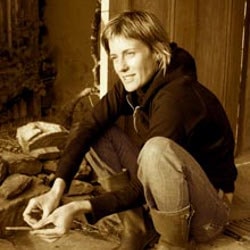
Leigh Brown
Leigh Brown did her PDC with Geoff Lawton in 1996 and has worked tirelessly at pioneering Outdoor Classrooms in under-resourced schools across South Africa. From the schools program has grown a youth education and activation program that connects young people to themselves and the positive action they can take in the world. Leigh is passionate about resilience for all.
Presented "How a Permaculture grassroots youth movement can bring about resilience in cities and settlements" : Presentation

Dr. K. Yella Reddy
Dr. K.Yella Reddy received his Ph.D. from IIT, Kharagpur in 2002 in Micro Engineering, specializing in water resources development and management. He designed a solar-powered trickle irrigation system in Andhra Pradesh and has worked on other water management projects throughout the region. His farmer-friendly, hydraulically efficient "Semi-Permanent Sprinkler System" was awarded the "Watsave Technology Award" in 2008. He frequently travels abroad giving talks, presenting papers and consulting on water issues. He is Secretary of the International Commission on Irrigation and Drainage (ICID), 'Water and Crop' work body. He is on the faculty of Acharya N. G. Ranga Agricultural University and is Director of WALAMTARI, both in Hyderabad.

Robina McCurdy
Robina is a dynamic Permaculture educator and community development facilitator with over 30 years experience. She is founder of: Tui Land Trust (www.tuitrust.org.nz), The Institute of Earthcare Education Aotearoa (www.earthcare-education.org), the Permaculture in schools project ‘SEED’ in Southern Africa (www.seed.org.za), and the Localising Food Project (www.localisingfood.com). She is the producer-director of ‘Growing Schools’ and ‘S.O.S: Save Our Seeds’ documentaries, and author of the community facilitation manual 'Grounding Vision, Empowering Culture'. Her most recent employment was as a sustainability consultant in post-earthquake Christchurch, NZ, where she worked with ‘Project Lyttelton’s ‘Harbour Basin Food Resilience’ project. Robina has worked internationally with a diversity of ecovillages and intentional communities, at various stages of development, from conception to maturity. She has applied her powerful community-building methods with households, neighborhoods, schools, farms, ecovillages and entire bioregions, in Aotearoa/New Zealand, Australia, Southern Africa, Great Britain, France, Brazil and North America. She is currently part of a small development group working on the creation of a large-scale ecovillage in NZ, which is drawing from the best models globally.
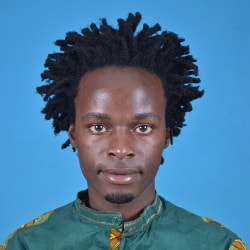
Wycliffe Otieno
Wycliffe Otieno is a citizen of the earth, who is at the forefront of change in assisting raising the vibration on the earth. He is born in Kenya in May 1992, and completed his permaculture design qualifications at the world renowned Permaculture Research Institute (Kenya). He also attended the permaculture course at Oregen State University. Wycliffe's prime focus is to work with the rural people and support them in escaping from extreme poverty by returning back to basic permaculture principles, guiding them towards a more sustainable life. Through the development of an organic natural lifestyle, he aims to empower the youth and children at home and in their future communities. His projects focus on sustainable land use and design with ecological techniques, using patterns that occur in nature. As a earth worker, Wycliffe tends to enhance maximum effects while minimizing wastes. He is convinced that permaculture with youth is not just about gardening, but can also be a holistic approach to life. As per Wycliffe, "Tomorrow's fruits are in today's seeds", and true sustainability will only happen through a whole life change - so let's be the change and make it so!
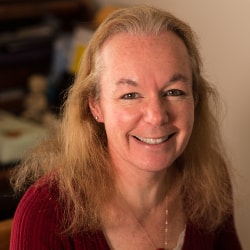
Marcia Amidon
Marcia Amidon is an editor and author who writes for many audiences, from children through adults, with over 150 published books and 500 magazine articles. She works in sustainable development with her colleague, J. Tedrowe Bonner, through his company Rubicon Seven, LLC. They write a blog at www.gnosticgreen.com. She is also a founding member of the board of Friends of IPC.
Presented "Women in agriculture: a historical perspective" : Presentation

Paolo Rosazza
Paolo Rosazza Prin is a PhD on aerospace engineering, and an engineer with specialization on system design. He participated in several collaboration with NGOs, with Engineers Without Borders and academic institution, teaching and consulting in relation to projects of international cooperation in the energy, environmental and food safety, sanitation, agriculture and Permaculture. He performs his research on Permaculture starting from a PDC at the Italian institute of Permaculture, recognized by the Permaculture Research Institute Australia, then getting experience on several Italian organic farms, then performing a permaculture intership on sustainable architecture and farming at Permaculture Institute TAGARI – Australia. He is a founding director of EcontAct, an association made up of people who believe in the overall development of the quality of life through projects that take as a reference point the respect for the culture, the identity of each people, awareness raising, development education, the research and the application of the most appropriate techniques for better management of land resources. Paolo was building a Permaculture Learning Centre in Egypt, Sinai since 2014, offering PDC course as a means of supporting the wonderful work of Bedouin Community. Paolo is nowadays involved in research and development on permanent systematic design methodologies.
Presented "Permaculture learning center - Egypt, Sinai" : Presentation
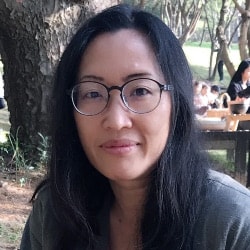
Hui-i Chiang
Hui-i Chiang is a leading environmental education and permaculture pioneer in Taiwan. She is the founder of Earth Passengers, which has organized Taiwan’s first environmental education leadership trainings and permaculture courses. During the past two decades, she has focused on energy education, redesigning cities for resilience and food production, and developing appropriate technology. She is active in East Asia environmental networks and has been a consultant for community development, train-the-trainers initiatives, school garden projects and rural revitalization projects in Taiwan and China. Together with her colleagues, Hui-i is now developing a permaculture learning center on the east coast of Taiwan and is currently organizing community projects including a seed library, a local market, a local skill-sharing project, and a women farmers’ cooperative
She regularly teaches permaculture workshops and PDCs in Taiwan and China. Hui-i is the co-author of “Design for Life,” (向大自然學設計) the first permaculture book in the Chinese-speaking world, based on local permaculture practices and experiences.
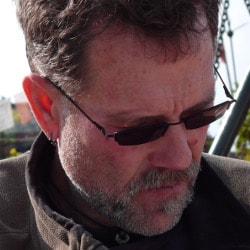
Rico Zook
For the past 20 years Mr. Zook has been a Permaculture designer, consultant and educator working with private individuals, farmers, villagers and local organizations in India, Cambodia, northern New Mexico, the Middle-east and Europe. This work focuses on assisting all levels of our global community to create culturally and environmentally appropriate life systems that are resilient and regenerative. He has also worked with local and indigenous cultures to help preserve traditional knowledge and technologies while adapting to and becoming active members of our globalized world. With work in different climates and cultures, Rico has established himself as one of the new leaders and innovators in Permaculture worldwide. This is further supported by his work with global Permaculture organizations, as well as being a founding member and managing partner in Permaculture Design International, a global design, build, and train firm focused on large-scale globally significant projects.
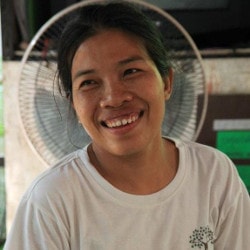
Sarinya Kumpila
Sarinya has been asking the question to herself how we (humans) can live together with the forest since she was a teenager and saw the damaging effects of a strong typhoon and government policies to relocate peoples from the forest. After completion of university, she has worked to learn and practice that which we call “Wanakaset” (Biodiversity for Self-Reliance) upon the base of the “Self-Sufficiency Economy” until today. She has been practicing with her family on their land in Sanam Chaikhet, Chachoengsao, Thailand, and been a leader and teacher of these ideas and practices with farmers and others.
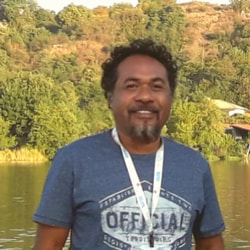
Ego Lemos
Ego works as the National Adviser on Curriculum Development for Basic Education on Arts & Culture and Permaculture School Gardens, for the Ministry of Education of Timor-Leste. He is also a lecturer in Sustainable Agriculture and Public Arts & Culture at the University of Timor-Letse. He has received several international awards for his national contribution to music, art & culture and community development. Ego is the founder-coordinator of the Sustainble Agriculture Network and Organic Agriculture Movement in Timor-Letse. He is also the founder-coordinator of Permaculture Timor-Leste (PERMATIL), as well as the founder-counselor of PERMASCOUT and PERMA-YOUTH movements. He co-authored ‘Permaculture Gardens for Kids’ produced by PERMATIL, and ‘A Tropical Permaculture Guidebook’ (www.permaculture guidebook.org). He is sole author of the ‘Training Manual for Agro-biodiversity in Timor-Leste (GIZ-AMBERO) and National Curriculum for Basic Education Grad 1 – 6 (Min of Edn). Ego holds a Diploma of Permaculture Design (Permaculture Institute of Australia) and certificates in Monitoring Evaluation and Learning (MDF Pacfic-Indonesia Consultancy) and Integrating Nutrition in Primary Education Curriculum (FAO). His Ted Talk: Ego Lemos/TEDxDili ‘School Gardening to Tackle Malnutrition’ illustrates why embodying permaculture within the school curriculum is so important.

Mari Stuart
Mari Stuart is an ecological designer, educator, researcher and writer. She is the founder at Project Grounded, an initiative that facilitates consumer engagement and community investment in regenerative agriculture and carbon farming. Originally from Finland, Mari moved to the US as a college student and went on to live and travel on five continents while pursuing graduate study in religion. She has spent several years living in India. She holds a PhD from Harvard University, and taught South Asian religions at Reed College and the University of South Carolina before transitioning to her current work in ecological design. She completed her PDC in 2010 with Robyn Francis and Penny Livingston, a Permaculture Teacher Training in 2012 with Jude Hobbs, and the Ecological Landscaper training at the Permaculture Skills Center in 2016.
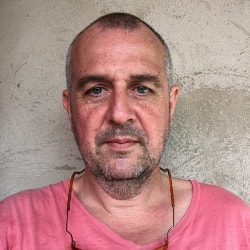
Bert Peeters
Born in Belgium, Bert has been in the Philippines since 1989. He worked in the education sector and has been hosting groups, individuals, professionals and volunteers in the Philippines on a regular basis ever since. Later he started designing products to improve living conditions for people in rural areas. He developed and set-up development projects with Tribal communities in several places of the Philippines for more than 15 years. He studied and developed synergy models between nature and designing. Systems thinking is Bert's motiviation in cooperation with people in order to elevate designing to a sustainable development level. The Permaculture framework is then his favorite design method and approach for combining available natural sources and simple technologies into relevant and sustainable design solutions. At present, he is training people to develop skills and to take (in a positive way) charge of the changes happening in their environment. Bert has been coordinator for a volunteer network and a international solidarity network. Later he became the program coordinator for a foreign support development program. In 2000, he started the permaculture development site of Cabiokid foundation in Cabiao, Nueva Ecija, and also founded the Philippine Permaculture Association and created more recently the Isabela Permaculture Development center in Northern Luzon. More networks are in the pipeline to ensure a well rooted permaculture fabric in the Philippines.
Presented "The gentle wild: Generating eco-systems based abundance, crafting and healing with permaculture" : Presentation
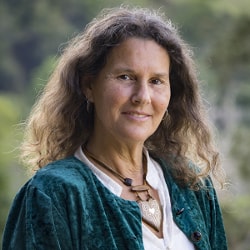
Robin Clayfield
Robin Clayfield is an internationally respected facilitator, educator, author and social change practitioner who regularly facilitates courses in Australia and overseas. She is best known for training and coaching a diverse cross-section of educators, facilitators and group leaders to effectively engage their audiences through creative, interactive and empowering processes and using innovative and dynamic learning methods. She is a respected 'Elder' and pioneer within the Permaculture movement and these days specialises in Social Permaculture. She loves to design and present uniquely crafted workshops and experiences for community organisations, social enterprises, festivals and conferences based on the needs or theme of the group. Robin has authored 2 books including 'You Can Have your Permaculture and Eat It Too', created a CD of guided visualisations and produced the 'Creative Community Governance and Decision Making Resource Kit'. She co-authored the 'Manual for Teaching Permaculture Creatively' and several resource kits for educators with Skye 22 years ago. Robin has more recently framed up her own learning and group work methodology, 'Dynamic Groups, Dynamic Learning' and has run the social enterprise 'Earthcare Education' for over 28 years. The ‘NEW Permaculture Principles Card Game' and the 'Creative Process Wild Cards' are her latest publications, both launched in 2015.
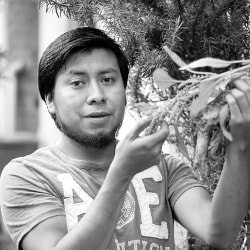
Patrick Evelio Mucia
Patrick Evelio Mucia, is a young permaculturist, Maya Kaqchikel from Guatemala, Centro America. Since the last five years he is part of IMAP team as the Seed bank Manager and coordinator of the biodiversity program. IMAP promotes Native and heirloom seeds as the fundamental base for the sustainable development of the indigenous community and the future of the Mesoamerican region. Patrick has been a key figure for IMAP to be able to preserve and improve 36 species of edible plants and the distribution of 500 pounds annually to the communities of Mesoamerica. Patrick will be presenting the work of IMAP with indigenous community in Permaculture Education, Cultural and biological biodiversity, and Food Sovereignty. He will be sharing his knowledge and experience on how to stablish community seed Banks and the challenges that are confronted to preserve and promote native seeds in Guatemala.
Presented "Seed bank implementation and management with indigenous communities in Guatemala" : Presentation
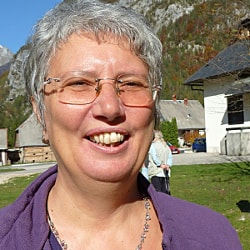
Anna Bartoli
Anna Bartoli, PhD, theoretical physicist, naturopath and school teacher, in March 2009, decided to attending the PDC 72. In August 2009 she subscribe to the Italian Permaculture Academy Association and in April 2010 she enters like secretary of the Association. In July 2011 she attended the Teachers' Training Course with Rosemary Morrow and in April 2012 she received the Diploma in Applied Permaculture. Anna participates actively in the dissemination of Permaculture through the teach PDC courses 72 hours (at now 25) and the participation in the European Permaculture Teachers Partnership and Permaculture Council of Europe since 2012. From this opportunities she designed and organized the EUPC2016 in Bolsena city. Another challenge was to share her teaching methodology through an International Teachers Training Course in Italy according to Rosemary Morrow’s teaching and the first Teachers training Course was at EUPC2016 in Bolsena and the second in Borgo Stremiz (may 2017).
Presented "Permaculture: a living community and beyond - the Italian experience" : Presentation

Jeremiah Kidd
Jeremiah's passion and education in Permaculture, natural building and alternative technologies began in the late1980’s. He completed his first Permaculture Design Course in 1992 and many advance classes leading to a Diploma from the Permaculture Institute. Jeremiah was a partner with Living Structures, one of the first Permaculture and green building firms in the USA, for five years. In 2000 he established San Isidro Permaculture in Santa Fe, New Mexico, a design and installation company focused on water catchment, permaculture education, grey water systems, native and edible plant landscapes, erosion control & land restoration. In 2014 he formed Permaculture Design International with seven other leading regenerative design consultants. Jeremiah has volunteered and consulted in the USA, Latin America, Caribbean, Africa and Asia on several projects.
www.permacultureintl.com
www.sipermaculture.com
Presented "Community drought solutions - building resilience and abundance through wholistic design approach" : Presentation
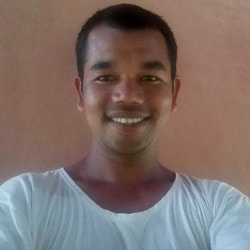
Than Shwe
In 2009, Than Shwe graduated from Model Farm Initiative Program (MFI) organized by NEED-Myanmar in Chiang Mai, Thailand. It is six moth intensive courses focuses on Sustainable Organic Agriculture, Environmental Conservation, Community Development, basic Democracy and Human Right. He was graduated from University of Distance Education, Yangon, Myanmar. Than Shwe believe that the development of Myanmar totally based on agriculture sector development where almost 70 % of population is involved. In 2012, Than Shwe and his organization tried to allocate NEED-Myanmar to inside Myanmar from Thailand to be able to work more effectively for their community. He is trying to develop agriculture sector by empowering the youth from rural grassroots community from all over Myanmar through Eco Village Farm School in Hmaw Bi, Yangon, Myanmar. Than Shwe has been teaching organic agriculture at Eco Village Farm School and have been helping with another agriculture trainer especially foreign trainer. Than Shwe mission is “Learning, Sharing and Develop”. He was also introduced about Permaculture in 2009 by Canadian agriculture trainers when he was attending MFI Program in Chiang Mai, Thailand. From that time he has been looking for opportunity to learn more about Permaculture and other natural farming skills.
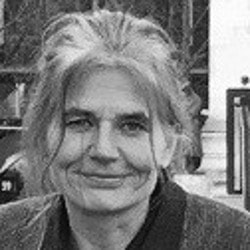
Dr. Julia Wright
Coming from South London, Julia undertook her PDC in 1990 and since then has attempted to integrate it into her professional work in sustainable agriculture both in the UK and internationally. She currently holds the post of Agroecological Futures at Coventry University, and is supervising doctoral research on the potential of arable permaculture. She also sits on the Research Advisory Board of the Permaculture Association UK. Her own current main research interest is in Quantum Agriculture.
Presented "Quantum-based agriculture: it is time for permaculturists to embrace the invisible" : Presentation
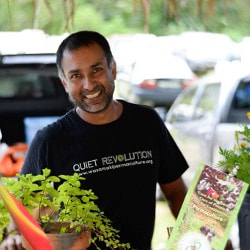
Erle Ramahan-Noronha
A global citizen, Erle Rahaman-Noronha is the Kenyan-born owner of Wa Samaki Ecosystems. Tracing his roots to Goa, India, he has lived in Canada and now resides in Trinidad where he has regenerated a former citrus estate through permaculture design. He teaches and practices Permaculture, producing indigenous food crops, tropical fish and cut flowers on his farm which has won Agricultural Entrepreneur awards for forestry, aquaculture and horticulture. Erle holds a BSc in Applied Biochemistry and a MSc in Zoology from the University of Guelph. He was trained in Permaculture Design, Intensive Aquaculture, Dendrology, Natural Building and Tropical Landscaping. As co-director of Caribbean Permaculture Consultants Ltd., he spearheaded initiatives using permaculture to rehabilitate degraded lands, to create forest buffer zones around industrial estates and to educate students and teachers, on regeneration, throughout Trinidad. He is a trail-blazer in the field of Permaculture, in the Caribbean, which he refers to as “the quiet revolution that is happening”. His TEDx talk (http://tedxportofspain.com/portfolio/erle-rahaman-noronha/) has inspired many to begin the change. He is currently overseeing one of the first quarry regenerations in the Caribbean using Permaculture design. Walkers Reserve (www.walkersreserve.com) is a 300 acre sand mine that is transitioning to a food forest.
Presented "Successes and challenges in implementing Permaculture designs in heavy clays and loose sands in the Caribbean in a time of climate change" : Presentation
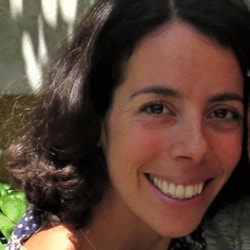
Eunice Neves
Eunice is passionate about the limitless possibilities for ecological design and grassroots cooperation, towards a thriving future of the planet and all beings. Trained in Landscape Architecture at the University of Oporto, she worked in Portugal and Holland on private gardens, public spaces and urban planning. She left Holland in 2009 to volunteer in an ecological village in Nepal, an experience that changed her perception of the world and her profession, introducing her to Permaculture. Since then, she has been fully committed to gaining knowledge and experience in Permaculture Design. She has taken numerous courses with world experts, developed several design projects, organized and facilitated various trainings and events. She also believes Permaculture Design is the future of Landscape Architecture and Urban Planning and is actively working to bring these new ideas to her University. In 2015-2016, Eunice embarked on a crowdfunded independent research tour around the world to better understand Permaculture Design at its best by visiting mature Permaculture projects. She worked and lived with various Permaculture Pioneers, studying in depth their projects, ways of living and how it all came to be. Currently she is consolidating the resulting research materials into an interactive format so that this invaluable knowledge and wisdom of the pioneers can be easily shared with Permaculture Designers, academics, conventional designers, as well as farmers and growers so that regenerative actions can be fast tracked around the world. In her research she has been working closely with Sara Wuerstle, a very knowledgeable and experienced Permaculture Designer and Teacher from the US, with whom she is also creating a regenerative enterprise.
www.permaculture-research-tour.com
Presented "Accelerate succession in the global permaculture community - learning from the pioneers" : Presentation
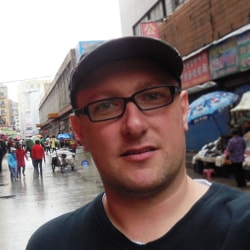
Dr. Benjamin Habib
Dr. Benjamin Habib is a Lecturer in Politics and International Relations at La Trobe University, Melbourne, Australia. Ben is an internationally published scholar with a current research interest in environmental movements, international climate politics, and Northeast Asian security. He teaches environmental politics subjects at undergraduate and postgraduate levels, and runs the Environment and Sustainability in East Asia study tour for La Trobe University students and sustainability professionals, in collaboration with CERES Global. He teaches into the permaculture design course at CERES Community Environment Park in Melbourne, and his permaculture practice focusses on the application of permaculture design principles to socio-economic systems. He is also an active blogger at Ben@Earth.
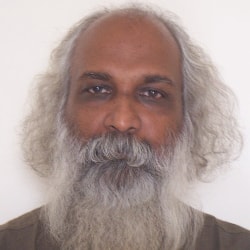
Jinan K B
I am a victim of modernity, uprooted from culture and nature, cognitively damaged and spiritually alienated. As I began to addressthis I got interested in understanding the processes involved in the formation of our beingness. I also got interested in creativity,learning process, aesthetics and its relation to culture etc due to the contradiction I found in institutionalized education vs organic learning in communities. My exposure to how children and non-literate people learn made me explore the biological roots of learning as well as the loss of biology among the so-called educated. My present research is on understanding how children learn the real WORLD and world's impact on children's formation and how learning the WORD has impacted (worldview, cognitive, construction of knowledge) the so-called educated and turned them into anthropocentric beings.

Dr. Charlie Brennan
From the earliest age, Dr Charlie Brennan has been fascinated with the land. From the moors, woods, hedgerows and fields of Devon, England, to studying in Asia as a teenager and eventually living, studying and working in Australia. Through farming, landscape design and garden making, Permaculture/Edible Streetscapes consultancy, Landcare conservation project work, to supporting Aboriginal culture Caring for Country, this passion and fascination has deepened. He is a Social Ecologist, community educator, researcher and lecturer, has helped to create several conservation and sustainability alliances – whilst always keeping his hand in the soil. With 30 years applied practical experience, Charlie has dedicated his life to ‘bringing the land alive’ through garden-making, design and consultation, weaving together landscape and Permaculture design, conservation, ecopsychology and more. …He offers a range of innovative workshops and is a speaker at events and conferences, bringing together inspiration and experience to create joyful, abundant, practical outcomes.
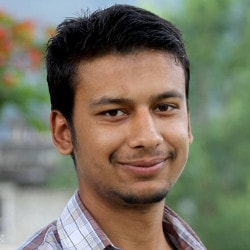
Bibek Dhital
I am Bibek Dhital, an undergraduate agriculture student, from a small village of Nepal. I did my PDC in 2011 at HASERA Agriculture Research Center and co-facilitated another one with Mr. Govinda Sharma in 2015 and have been working as a Research assistant/ Trainer at HASERA since 2012. As a trainer, I have been to different parts of Nepal and facilitated farmers in designing their farm. Exploration and research has always been a passion of mine and till date I have published three of my research paper in the international Journal.I am also a Co-Founder/Secretary of a youth led organization, Youth For Agri Welfare (YFAW), a registered NGO under Government of Nepal. Through this platform, I am passionately helping to introduce and broaden up Premaculture knowledge to youths and farming communities. Also, through YFAW, I am initiating and leading projects related to environment conservation, farmer’s capacity development, youth empowerment and children empowerment.
Presented "Ecovillage development through the empowerment and leadership of women: the example of Pathlekhet (Nepal)" : Presentation
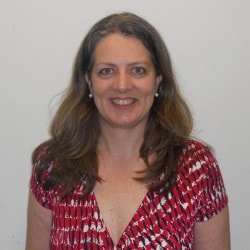
Dr. Elizabeth Anne Westaway
Dr Elizabeth Westaway has specialised in international public health nutrition and worked as a practitioner, researcher and consultant in different countries within sub-Saharan Africa, South and South-east Asia. Most recently, she worked as a Senior Nutrition Consultant in the Nutrition and Food Systems Division at the Food and Agriculture Organisation of the United Nations (FAO) in Rome, Italy on a research/ advocacy project to improve the food and nutrition security of smallholder farmers in Cambodia and Malawi. The integrated agriculture-nutrition education project aimed to provide poor rural farming households with the knowledge, skills and supplies to diversify crop production and increase own consumption of local, fresh, nutritious foods for healthier family and child diets. Prior to that, she worked on a qualitative research study in North West Pakistan exploring the role of the Jirga (a local male institution) as a mechanism for community engagement and developed a nutrition behaviour change communication intervention to increase community members’ awareness of iodised salt, facilitated through a Lancashire-based charity, the Abaseen Foundation UK. Elizabeth’s research interests include: community-based nutrition, dietary diversification, food and nutrition security, regenerative agriculture, permaculture, livelihoods and poverty reduction in developing countries.
Presented "Sustainable nutrition and permaculture" : Presentation
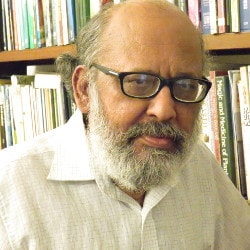
Ardhendu Sekhar Chatterjee
Ardhendu Sekhar Chatterjee graduated in Commerce from Calcutta University. In the mid-seventies he studied Rural Leadership in Japan. On his return he worked in various aspects of Community Communication and Development. Since the mid-80's he has been working in the field of Sustainable Agriculture with particular focus on the small and marginal farmers in India, as a practitioner and trainer. In the late 80's, he trained in Ecological Farming and Permaculture in Auroville. He has worked as a trainer in various countries of South and SE Asia. He has also written and edited a large number of Booklets and other study materials in Bengali and English.
Presented "Climate change and adaptation in East-Central India" : Presentation

Bridget O'Brien
As a caring steward to life, Bridget O'Brien strives to explore resilience through many different pathways. Her studies and work focus on self-care, social and land-use design. She shares her passion for playful impactful loving service as an educator and designer, utilizing her diverse experiences and trainings in horticulture, Permaculture, Yoga, fermentation, and marketing to provide a ‘wholistic’ approach to culture repair. Bridget directs Resilient Spirals LLC, and works with Sacred Places Design; she is the Program Director for New Rising Sun Farm (an educational retreat center and farm developing in Ganges, Michigan USA), and the creative inspiration for the engaging design game 'Adapt', in collaboration with PermaculturePrinciples.com.
Presented "'Adapt' - Play and Create the world of your dreams" : Presentation
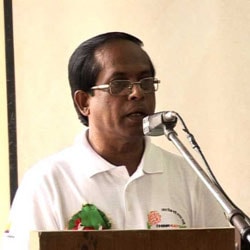
Boniface S. Gomes
Boniface Subrata Gomes was born in Bangladesh and founded of Bangladesh Association for Sustainable Development (BASD) in 1991. He studied Theology, Philosophy and Information Science. He is founder of different social foundations and groups. He is engaged with different national and international, Networks, social and development organizations. He is the founded of Climate Change Mitigation and Adaptation Networks (C-MAN) through which 35 NGOs and University are working in the country for climate change mitigation and adaptation. He is trained on Permaculture Design, Ecovillage Design, Organic Cultivation, Cooperatives, Microcredit Management and Development. He is directly involved and guiding 60 Ecovillage communities in the Southern Bangladesh and guiding 16 Permaculture Communities through different NGOs and Institutions in different parts of the country. He is organizing PDC and EDE courses in the country time to time and more than 600 community leaders, farmers, teachers, researchers, NGO-GO personnel are trained. www.basdbd.org
Presented "Building capacity and empowering communities towards climate change adaptation and food security in Southern Bangladesh" : Presentation
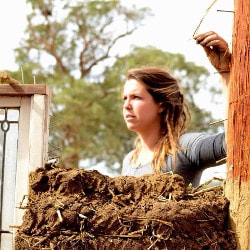
Dani Wolff-Chambers
Dani is a "kiwi" (New Zealander) living in Australia. She started out her journey as a building designer and very quickly became aware of the waste and ‘unsustainable’ practices in the Australian conventional building industry. Dani attended internships and academy’s in alternative and natural building techniques around the world such as Earthships, Strawbale, Cob, Mudbrick, Lightearth & Hempcrete as well as tiny and recycled materials. Then she returned to Australia, did a Permaculture Design Course and landed on 120 acres in Victoria. There, she and two friends started a permaculture farm, Agari Farm, and an intentional community where they lived for 3 years growing their own food and building their own homes. From that the natural building business bloomed, and she is now travelling around the globe designing natural homes and teaching others earth building through workshops.
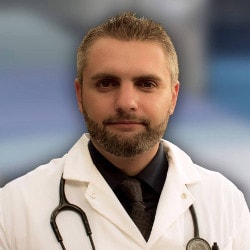
Michael Cocchini
Michael Cocchini MD-c of New York is the founder of Hope & Homes, an organization that teaches sustainable, natural, earthquake resistant building techniques in Nepal, India and Africa using 360 Virtual Reality and Computer Animated Design. Michael studied Civil Engineering, Business and Law at RIT in New York before attending Medical School. He completed the April 2017 PDC in Nepal with Woven Earth.

Cynthia Tina
Cynthia’s mission is to grow networks of people, projects, and communities working in collaboration to regenerate our planet. She travels the world offering coaching for individuals, facilitation for teams, and consulting for impact organizations. Her website, cynthiatina.com, is a resource hub and launch pad for connecting with community-led movements. Cynthia has visited over one hundred regenerative land projects across four continents, having completed significant work with projects in Togo, West Africa, Costa Rica, the UK and the Northeast of the U.S. She is currently spearheading the development of the North American Alliance of Community Networking Organizations and co-creating the International Permaculture CoLab. She serves on the boards of the Global Ecovillage Network and the Fellowship for Intentional Community, and has worked with NuMundo - all platforms linking people and community projects around the world. She is a founder of NextGENNA, a non-profit hosting annual gatherings for young changemakers. She regularly teaches and presents at community gatherings, permaculture convergences, ecovillage conferences, and transformational festivals. Her background is in leadership, marketing, and design with a degree in Sustainability from Goddard College. She is certified in Permaculture and Ecovillage Design. When not traveling, she delights in crafting nourishing meals, hosting friends, and hiking the hills surrounding her Vermont home. Her work is grounded in deep resonance with indigenous cultures, traditional life-skills, and nature connection.
www.nextgenna.org
gen.ecovillage.org
www.ic.org
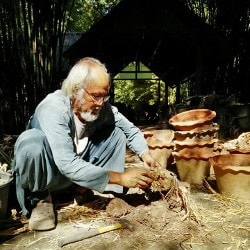
Chokedee Paraloganond
Chokedee Paraloganond, known as Lung (Uncle) Choke has been practicing “Wanakaset” over 29 years on his family land in Wang Nam Khieow, Nakorn Ratchasima, Thailand – learning and developing well-functioning ecological systems based upon the conditions and needs of this location. His place can be recognized as an excellent case of Permaculture design in practice even if he did not start from study of “Permaculture” by that name. He also has been a leader in community forestry and played a critical role bringing community members together to revitalize the forest of Khao Paeng Ma a buffer zone to Khao Yai National Park, which since has become well populated with Guar (native wild cattle). He regularly receives youth to learn about biodiversity, forest farming systems, and self-reliance practices. He hosted the 4th Thailand Permaculture Convergence in 2016.
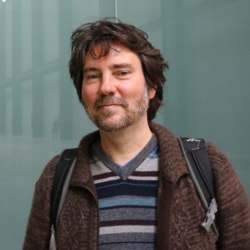
Lachlan McKenzie
Lachlan McKenzie (Dip. Permaculture) has been immersed in permaculture since completing his PDC in 1994 in South Australia. After many years practicing and designing, Lachlan completed several advanced permaculture courses and an internship at Djanbung Gardens Permaculture Centre with Robyn Francis. His permaculture adventures took him to Timor-Leste in 2001 working for 5 years with Timorese NGO Permatil and consulting for International NGOs providing trainings (including PDCs), writing curriculums, developing work plans, creating educational materials and demonstration sites. This culminated in co-writing and producing the Permaculture Guidebook from Timor-Leste in three languages. An accompanying bi-lingual Permaculture Facilitator’s Handbook and permaculture educational DVD were created working with IDEP Foundation in Bali and post-tsunami Aceh, Indonesia. From 2008 - 2015 Lachlan worked in northern Australia with school gardens, community gardens and teaching permaculture courses. He is currently in the UK, volunteering with Permaculture Association Britain, is a core member of the International Permaculture Education Network (IPEN) project and co-author/co-manager for the new Tropical Permaculture Guidebook.
www.permacultureguidebook.org
www.facebook.com/permacultureguidebook
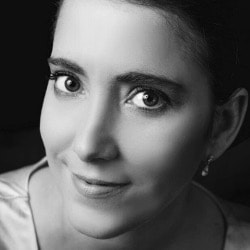
Dr. Keri Chiveralls
Dr Keri Chiveralls is Discipline Leader of the Graduate Certificate in Permaculture Design at CQUniversity. She is also a cultural anthropologist with an interest in environmental anthropology, social movement studies and theories of social change. She received her doctorate in anthropology/social inquiry from the University of Adelaide in 2008 and has gone on to publish numerous research outputs including presentations at national and international conferences, book chapters, journal and magazine articles. She recently completed a Research Fellowship at UniSA, where she was engaged on a number of different projects looking at social and cultural aspects associated with ‘sustainability’ in construction, including conducting fieldwork in the permaculture and ‘natural’/alternative building movements, and lecturing in ‘sustainable development: a global perspective’ and ‘social and community planning’. After returning from participation in the Dialogue Days for the drafting of the Sustainable Development Goals at the United Nations Conference on Sustainable Development in 2012, Keri became a member of Transition Adelaide Hills, and a passionate advocate for transition towards sustainability and beyond. She is currently relishing the challenge of applying her background in cultural anthropology and sustainability to the task of co-ordinating and developing one of the world’s first tertiary level permaculture programs at CQUniversity.
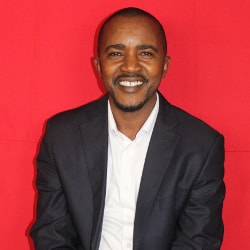
Nicholas Syano
PhD candidate in Dryland Resource Management in the Department of Land Resource Management and Agricultural Technology (LARMAT), Nairobi of University, Kenya. Mr. Nicholas Syano is Kenyan, born on 24th August, 1977. He holds a MSc. Natural Resource Management awarded by the University of Wisconsin, Stevens Point (UWSP), USA. He is a Permaculture/Agroecology teacher, a consultant and has been practicing and teaching permaculture since 2011 across Kenya and East Africa and especially Tanzania where he taught the first ever Permaculture Design Course (PDC) in Kiswahili. After his graduate studies in the USA where he was the “Outstanding Graduate Student of the year”, Nicholas went back to his community where he set up a local NGO known as Drylands Natural Resources Centre to work with his people to address both environmental, economic and social challenges faced by his community which is in the drylands of Kenya. Currently is working with 600 households (about 3,000 members) and 6 schools with an average population of about 1,500 students. The current main projects are: tree planting where more than 500,000 different local trees have been planted in the community, rain water harvesting project where 92 cisterns each of 10,000 litres have been installed and are providing clean drinking clean water which is shared in the community, green charcoal production project, agroecological food production project, moringa processing and carving and basketry projects. Nicholas is also one of the co-founders of permaculture Research Institute Kenya and he has been helping the Institute to develop the Research Program. Nicholas has extensive experience in project management from his time as a tutor and Centre manager at Kenya Institute of Organic Farming (KIOF) as well as Nyumbani Village-kitui where he acted as Programme Manager for seven years. Nicholas is currently in his fourth year of study for a PhD in Dryland Resource Management at University of Nairobi. His topic is on “Ecological and socio-economic evaluation of dryland agroforestry systems” and he is currently collecting data and writing.
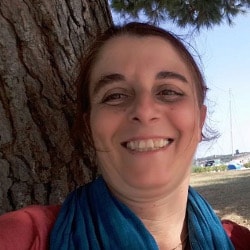
Francesca Simonetti
I am an Italian engineer agronomist, educator, facilitator, and ecological designer. In 2007, coming back to Italy from India where I spent several months volunteering in Auroville, I found Permaculture, it was love at first “sight”; a new energy came in my life and profession. I am now a member of the board committee of the Italian Permaculture Academy and in 2016 I took an active part in the organization of the EUPC 2016 in Bolsena, Italy. I have been involved with Permaculture since 2007 in projects in Europe, Africa and Asia, working for individuals, communities and public administrations. NatureDesigns is the consulting company I share with my husband John Button. I am collaborating on the project Children in Permaculture (www.childreninpermaculture.com). I teach Permaculture in Italy and abroad, to adults and children. With Sharmishtha Dattagupa, I’m developing a project in North India, which involves the local Santal tribal community.
www.naturedesignsjohnfranci.com
Presented "Children in permaculture: a future of hope" : Presentation
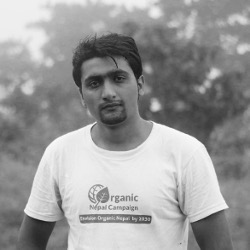
Madan Poudel
Madan is an agriculture student of Bachelors in Agriculture at Agriculture and Forestry University from Nepal. Combining mix of young entrepreneur and permaculture practicnor, Madan started the journey of permaculture starting up with Lok Marga Integrated farm. He is founder of YubaKrishi, an online magazine in Nepali that supports youth towards sustainable farming by mentorship, networking and entrepreneurship development. He is also a national director of International Association of Students in Agriculture and Related Sciences (IAAS) from Nepal. He works with different young professionals network around the world to transfer technical knowledge and advocate on permaculture, organic and sustainable agriculture practices. He strongly believes to bring positive change in rural area through mentorship, networking and entrepreneurship development.
www.yubakrishi.comwww.iaasworld.org
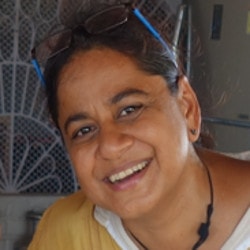
Clea Chandmal
Clea Chandmal studied biological sciences at University of Cambridge, UK. She did her PDC with Bill Mollison, Geoff Lawton and Greg Knibbs in Melbourne in 2008. She currently teaches and runs a farm in Goa. She has given a TED-x Talk entitled “Permaculture – From Farm to Forest.” She has developed a novel soil regeneration method, called the ‘Forest Floor method’.
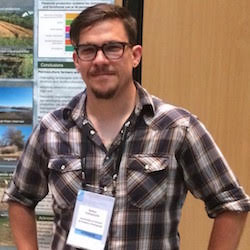
Rafter Sass Ferguson
Rafter is an agroecologist, focusing on both the ecology and the politics of sustainable agriculture. He completed his PhD in December 2015 with a dissertation entitled “Permaculture as international grassroots network and farming practice: a multidisciplinary study.” He came to graduate study after a decade in the global justice movement, and four years of involvement with permaculture. Since 2005 Rafter has been developing and sharing the Liberation Ecology workshop, a curriculum that helps participants develop strategies for integrating social justice and sustainability goals. He is a passionate about teaching, participatory research, edible mushrooms, and dance parties.
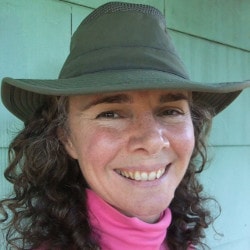
Jillian Hovey
Jillian is a facilitator of regenerative systems design, who has a creative and collaborative international practice. She holds a B.Sc. in Agriculture, which was enriched by doing a PDC in 1996. She founded the Sustainable Living Network in Toronto, which has served thousands of people since its inception in 1999. Since the early 1990s, she has been involved with a wide range projects, from urban balconies to entire ecovillages, in 35 countries. Jillian is known for her, sharp processing abilities, emotional intelligence, and integrity of questing into an emerging wholistic paradigm. She designs and delivers high quality learning experiences in Permaculture and Ecovillage design, and is committed to supporting a regenerative way of seeing and engaging with the world. Jillian has a strong practice in the often invisible landscapes of human ecology, and supports people in coming to greater awareness of “interior ecologies.” These skills are essential in her consulting practice, as a teacher, and as a mentor and coach.
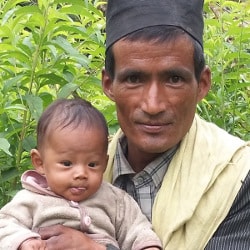
Paumal Aidi
Paumal is a farmer from Madana VDC in Humla district, one of the remotest parts of Nepal, where his farm is at an altitude of 2300m. He started his permaculture journey as a technician with the Himalayan Permaculture Group in 2004, at the height of the Maoist civil war where the remoteness and poverty of Humla made it a breeding ground for the insurgency. He quickly learned skills of organic farming and permaculture design techniques, and in 2010 became coordinator of Humla programs for the Himalayan Permaculture Centre, as well as continuing to develop his own farm as a demonstration and training centre. He is currently developing short videos based on the Farmers' Handbook for use in teaching low-literacy groups in remote areas.
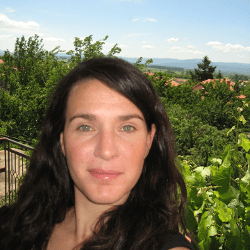
Sara Wuerstle
Sara is the Lead Designer for the ecological landscape company, Community Soil, based in California, USA. With over a decade of experience working in Permaculture Design, she has developed a highly integrated understanding of regenerative land development at any scale. She has studied and worked internationally with the leading practitioners in the field as well as farmers and growers while teaching and supporting more than 2 dozen PDC courses and trainings worldwide. As a consultant and designer, she has collaborated on numerous international development projects in Asia, Europe, Africa, and South America. Based now in California, she is on the ground proving the effectiveness of biological solutions to the flood/drought cycle there, while collaborating on intensive research of mature Permaculture sites around the world with Eunice Neves, a very talented Portuguese Landscape Architect and Permaculturalist.
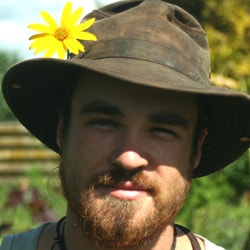
David Hursthouse
Dave Hursthouse is a New Zealand based Ecological Designer, Political Scientist, Facilitator and Permaculture Educator. He brings a critical and revolutionary eye to all that he engages with, and is resolutely committed to improving senescent human systems via rigorous and wholesome processes of design. Dave is enthusiastically focused on sowing the seeds of passion and courage among those world-shakers and world-makers dedicated to developing human systems more in tune with wider ecological patterns. He is passionate about forest ecologies, systemic patterns, critical theory, design philosophy, design process and radically creative change-making. Dave considers the Permaculture Movement to be one of the most potential-laden social movements of all time, and is determined to see that potential acted on all around the world with humility, authenticity and integrity.
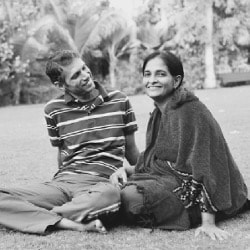
Nisha Srinivasan & Ragunath Padmanabhan
Nisha and Ragunath are a couple who along with their 11 year old son Aum Sathva have been living for the past 8 years at GreenLocal, an organic farm in Alandurai, a village in Coimbatore district, Tamilnadu. As a family and as members of the non-profit Service Space (local and global), they practice a be-the-change way of living in domains and activities that include natural farming, holistic healing, farm schooling, green architecture, native energy and local services. Prior to moving into GreenLocal, Nisha and Ragu have worked in India and the US for fifteen years with MNCs, Startups and Non-profits in the areas of Information Technology, Marketing, Advertising, Management Consulting and Sustainable Development.
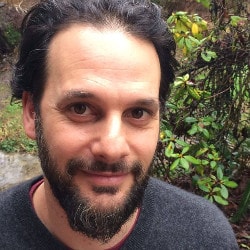
Andrew Millison
Andrew Millison has been studying, teaching and practicing permaculture since he took his first design course in 1996. He began teaching permaculture design at the college level in 2001 and has been an instructor at Oregon State University in the Horticulture Department since 2009. Andrew currently teaches the Permaculture Design Course at OSU on campus and online. He first learned permaculture design in the drylands of Arizona, where he studied for his undergraduate and master's degrees at Prescott College. His focus was on rainwater harvesting, greywater systems and desert agriculture. He started a permaculture landscape design and build company and also worked in an ecologically-based landscape architecture firm. In recent years, Andrew's focus has been more on broad scale farm planning, permaculture housing developments, obtaining water rights and planning water systems.
http://horticulture.oregonstate.edu/content/andrew-millison
www.earthrepairradio.com
www.permacultureintl.com
www.permaculturerising.com
Presented "Lessons learned from a free 35000 students permaculture course" : Presentation
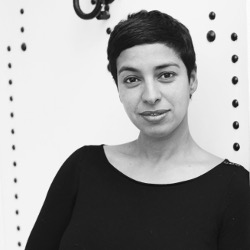
Rim Mathlouti
Rim Mathlouthi is a journalist and film director. She works mainly on environmental and social issues. She was born in France where she was active within environmental NGOs. She currently lives in Tunisia and chairs the Tunisian Association of Permaculture. In Tunisia, permaculture has emerged as a tool to develop agriculture in urban areas.
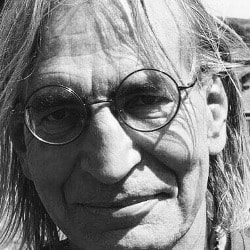
Brett Pritchard
Brett Pritchard has been a Permaculture Design Consultant since 1990 and a Permaculture teacher since 1993. In 1992 he received the Permaculture Community Services Award for his pioneering work introducing permaculture to Malaysia. Born in Australia he has worked in every major climatic zone from cool temperate to desert to wet tropics and is currently based in the dry tropics, where he has developed the carbon-negative low-maintenance BioWicked method of urban food growing. In addition to his Diploma in Permaculture (1993), Brett studied climate change at the Australian National University as part of his science degree, a Bachelor of Natural Environments and Wilderness Studies (2007). His main interest is the role of permaculture in mitigating climate change through closing urban food-waste-food cycles, though more recently it has expanded into the 'field of rice fields'.

Binay Kumar
Popularly known as "man in the bus" in India, and many other countries, Binay Ji is an IT guy turned Permaculturist for last 4-5 years at the Art of Living International Centre Bangalore. There is a model Permaculture site at AOL campus headed by Binay Ji. In this small span of time, he has gained so much of knowledge about ecology, Permaculture/Natural farming/Bos Indicus. So much so that now different universities and corporates and NGO's have started calling him to give awareness talks on the above topics. By his efforts and the grace of his master H H Sri Sri Ravi Shankar Ji, Binay Ji has been instrumental in setting up many model farms across India.
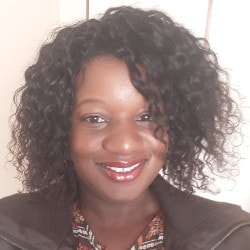
Chifundo Jean Khokwa
Chifundo is the coordinator of the Schools and Colleges Permaculture (SCOPE) Malawi network, a network of Permaculture organisations in Malawi that work in schools. SCOPE coordinates the activities in schools by building the capacity of partner organisations to use the Integrated Land Use Design model, currently working with 18 partner organisations and 33 schools. Chifundo attended her first Permaculture Design Course in 2008, in Mulanje, Malawi. She also attended a Permaculture Training Of Trainers facilitated by Rosemary Morrow in November 2009 in Lilongwe, Malawi. She has been working with schools in Malawi since 2008.
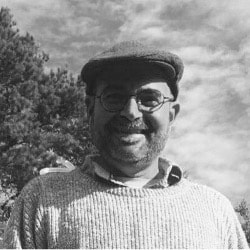
Mario Yanez
Mario Yanez is dedicated to envisioning and inspiring a transition toward life-sustaining, resilient human communities. He has a background in finance, information systems and ecology. He has several decades of experience applying systems thinking to developing and funding cutting-edge programming and creating provocative and relevant active-learning curriculum supportive of a much-needed cultural evolution. As a Permaculture practitioner, he is applying design at various scales, implementing regenerative productive landscapes, enterprises, and organizational and social systems. Mario is native to the Greater Everglades.
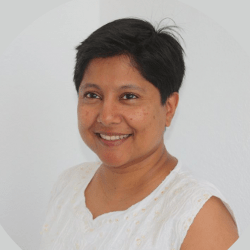
Nina Sengupta
Nina Sengupta is an ecologist with a PhD in Wildlife Science/Conservation Biology. She lives in Auroville, India and works around the globe as an independent consultant integrating biodiversity conservation and development options – including access to water and renewable energy. Her work includes program/protocol development, forest, program or policy assessment etc. She believes in sustainable living and has been living completely off-grid for more than 10yrs. She is also passionate about food forest, food gardening and making life science active and participatory for all. She has published a coloring book for adults, the first in India, on Edible Weeds.
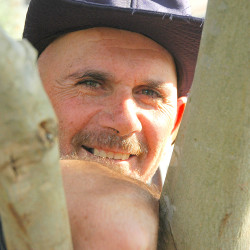
Murad Alkhuffash
Murad AlKhuffash is the founder of Marda Permaculture Farm and permaculture specialist. In 2006, after studying permaculture at the Farm Ecovillage Training Center in Summertown, Tennessee, Murad Alkhfash founded Marda Permaculture Farm in Palestine. He is creating a teaching center and model farm in Marda for local farmers and international permaculture students.
Presented "Planting seeds of hope in the occupied territories" : Presentation
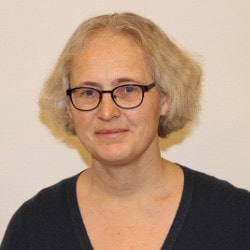
Jette Hangesen
Born in Denmark, Jette is a committed project developer, communicator and fundraiser and has a special interest in agriculture and environmental issues. Her small firm Envice has a vision to contribute to a green transition of society, minds and activities – locally and globally. Jette works with development and realization of projects in cooperation with organizations, enterprises and private persons, and offers help to fundraising, development of ideas, analyses, communication and realization of projects and activities. She used to practice organic farming for many years. Besides, Jette has also extensively contributed to communication in Denmark about Aranya and to fundraising.
Presented "Permaculture to achieve less emissions of greenhouse gas" : Presentation
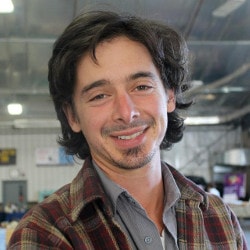
Jeremy Lynch
Jeremy first encountered permaculture while living and working on a farm in southern India – in the form of seed saving and biochar production on a small homestead within the outlying forests of an intentional community. Since that time, he has pursued an education among market farmers, activists, fellow entrepreneurs and extension specialists, studying and practicing natural building and green infrastructure design in the arid southwest United States. He is the founder of In Transition Permaculture, a Moab, Utah-based ecological design practice. His work in Moab and regionally emphasizes site-scale strategies toward integrative resource management, with an emphasis on stormwater, rainwater and greywater harvesting systems. He studied with Utah State University’s Permaculture Initiative and has received two permaculture design certifications. He currently serves locally to advise the City of Moab on water conservation and drought management, and he collaborates with a variety of local nonprofits and community groups on resilience-building initiatives. Building out from the landscape, with a degree in writing and communication, he is increasingly focused on the intersects of ecological and community health, and how communication can improve across – and because of – borders. Life in a rapidly expanding tourism-driven small rural community begs the question: how do we instill bioregional valuation and conscious process as alternative to the decadent dream of unyielding growth?
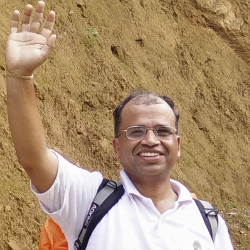
Govinda Sharma
Govinda Sharma has been practising and teaching permaculture since 1992 and has facilitated over 43 PDCs and 575 other short courses in various aspects of Permaculture in Nepal and abroad, and his trainings have included participants from almost 76 countries. He has a Masters Degree in Ecological Agriculture and has worked with farmers all over Nepal and in countries like Austria, Japan, Malawi, India, Qatar and France. He is the Managing Director of Organic Certification Nepal (OCN) and founder of HASERA Organic Farm, a Research and Training Centre dedicated to the promotion of Sustainable Agriculture, Sustainable Development, and Permaculture. He has written or edited 13 important books and proceedings in the field of permaculture.
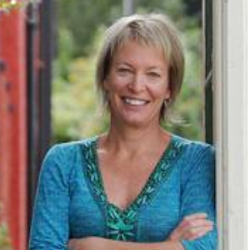
Orla O'Donovan
Orla O'Donovan us a lecturer in the School of Applied Social Studies, University College Cork, Ireland, and is also directly involved in the struggle over water taking place in Ireland. Over the past number of years she has become interested in the commons and the commons movement, and co-edited a 2014 special supplement to the Community Development Journal on the commons (see https://academic.oup.com/cdj/issue/49/suppl_1 ). Together with her friend and colleague Rosie Meade, in 2017 she took on the role of editor of the Community Development Journal, published by Oxford University Press. Orla has been involved in the organisation of three thinkeries on the commons. The first of these took place in 2014 and involved conversations with the post-development theorist and commoner Gustavo Esteva (see http://www.oxfordjournals.org/cdjc/resources/commons/videos/ ). “Commons against and beyond capitalism” was the theme of the second thinkery, which took place in 2015 and involved contributions from commons theorists Silvia Federici and George Caffentzis (see http://www.oxfordjournals.org/cdjc/resources/commons-against-and-beyond-capitalism/ ). The most recent thinkery took place in June 2017 focused on “Water, Anti-Privatisation Struggles and the Commons”. A brief report on this event is available on the website of Feasta: The Foundation for the Economics of Sustainability (see http://www.feasta.org/2017/06/27/water-commons-thinkery-report/ ), which co-organised the thinkery.
Presented "Remembering H2O and the waters of forgetfulness - Ivan Illich, permaculture and Ireland's water war" : Presentation
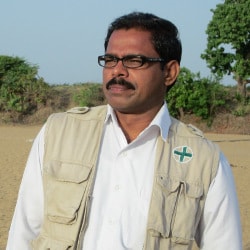
Dr. G. Syamasundar Reddy
Dr G. Syamasundar Reddy is born and grew-up in a farming family. He pursued his higher education at Acharya N.G. Agricultureal University, Hyderabad for about a decade and obtained his doctoral degree in Plant Pathology. He then joined the International Institute of Information Technology, Hyderabad, (one of the best IT Educational and Research Institutions in India) as a research faculty where he played an instrumental role in connecting Information and Communication Technologies to Agriculture. He played a pivotal role in the development of world reckoned ‘eSagu’- An IT based Agro-advisory System during which period he travelled hundreds of miles interacting with thousands of farmers in Andhra Pradesh. He had more than 20 publications which include a book, 2 book chapters, 6 journal papers and 14 referred conference papers. Having solved the connectivity problem (top-down technology model), he understood that there was a great miss-match at the actual field level. The content available is so generic and not actionable. He felt that the content to be disseminated to the farmers should be real time and customized. It should also be cost-effective and sustainable. He then relinquished his faculty position at IIITH and started exploring the farming by becoming a farmer himself (bottom-up pragmatic approach). For the past 7 years, he has been dedicating most of his time in both researching and validating the natural farming methods at IIIT, Hyderabad Experimental Farm (Sasya-Syamala Krishi Vanam). He also works with Sweet Lime farmers of Nalgonda, Mahabubanar, Kadapa, Ananthapuram and Prakasham district where he is reviving the declining orchards with simplest of farm made interventions. He has his own farm of 10 acres in Mahabubnagar district where he cultivates fruit crops organically.
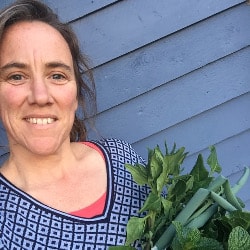
Robyn Rosenfeldt
Robyn Rosenfeldt is the founding editor and publisher of Pip Magazine, the Australian permaculture magazine. Robyn has taken her love of photography, design and sharing of stories with her passion for permaculture to create a magazine that is loved by many. Through the magazine she has connected with the permaculture movement throughout Australia and across the world and her goal is to share the collective knowledge and stories to a wider audience in an easy to understand accessible way. Robyn balances publishing the magazine with being a mother, growing her own food and working on creating change in her local community. Robyn also teaches permaculture and runs courses from her rural property on the east coast of Australia.
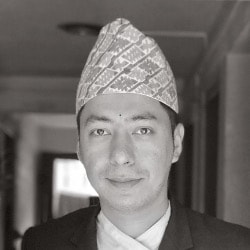
Nishad Malla
Nishad Malla, MSc earned his master's degree in Horticulture in Germany, and is currently an Agriculture Instructor for secondary level Agricultural Science students in Tandi, Chitwan, Nepal. Nishad completed PDCs in April 2015 while working for a organic farm in MA Center, Hof Herrenberg, Kirchbrombach (Germany), and again in April 2017 with Woven Earth in Nepal. He studied seismic resistant natural building in Gorkha Nepal with Woven Earth in October - November of 2015.
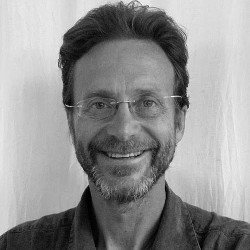
Christoff Schneider
Christoff is a former teacher for the permaculture institute of Bill Mollison and now teaching internationally PDCs in the name of the PRI. Holding as well New Zealand Diploma of applied permaculture and running at present a horticulture company, he is giving consultancy in future proof and sustainable agriculture systems as well as building edible & forest gardens. Christoff is helping interested families, farmers and groups to become more self-sufficient and independent. In 2015, after a year of further education and training in soil & humus development, CMC composting, plow less, low tillage and conservative soil management, soil homeopathy, with Urs Hildebrand, Angelika Lübke, Siegfried Näser aso, he took the lead in one of the largest composting plants in Lower Austria with the primary focus on improving compost quality and soil development. www.natuerlichkopp.at. Improving working conditions for employees and compost quality whilst increasing compost production by 25% to about 17500 m3 within a year. The product range of special purpose soils was extended from 3 to 12 in a season.
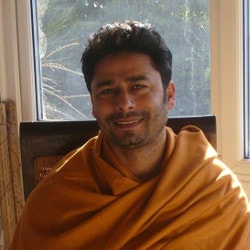
Shah Badyari
Shah has a background in ecotourism, business, and fair trade, and became interested in Permaculture in 2015 when he attended the IPC 2015 London. Shah was inspired by the work of Rosemary Morrow in taking permaculture into conflict zones around the world. He had the realisation that Permaculture would be a wonderful paradigm to introduce into the Kashmir Valley as a means of finding peaceful solutions to the issues experienced there for last few decades. Since 2015 Shah has completed his PDC and has dedicated himself to the concept of developing a permaculture demonstration site in Srinagar, the capital of Kashmir, and to offering Permaculture training in Kashmir to people from all walks of life. From this start point Shah has come to realise the profound impact that permaculture can have not only on Kashmir but on climate change in the Himalayan region.
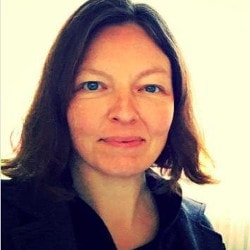
Katherine Szuminska
Katherine Szuminska is a director of the OpenAustralia Foundation and co-founded the OpenAustralia Foundation. The OpenAustralia Foundation is a pioneering charity that aim to give Australians the tools they need, and build capacity to effect the changes they want. The foundation hacks democracy, creates opportunities to encourage and enable people to participate directly in decision making on a local, community and national level. Their work targets existing channels, make them easier find, access and more rewarding to use. These technologies are open source digital tools and available to anyone, anywhere. Working with the Open Government Partnership; an international community, she’s helping people reconnect with their Governments, and helps them ask for what they need in clear and direct ways, and help Governments to work with people again. More recently she’s been working Civil Society and Federal Government leaders in Australia to help raise awareness of Open Government movement, and is helping to increase Government's capacity to respond to citizens' expectations of openness and participation. Kat studied permaculture with Milkwood Permaculture, Bill Mollison and Geoff Lawton, Robin Clayfield and Rosemary Morrow. She’s served on the board of Permaculture Australia, co-ordinated local permaculture meetings & organised community gardeners, facilitated PDCs and established an education program at her local & wonderful Blue Mountains Food Co-op. Kat has a background in art & film, previously working as a Visual Effects Supervisor, mostly on mainstream Hollywood movies.
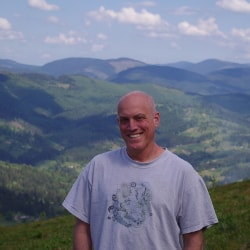
J. Tedrowe Bonner
Most of Mr. Bonner’s training is as a sociologist, where he focused on global studies. In 2008, he moved into working in regenerative development and public sociology, developing a sociological approach to permaculture and land use. As energy and climate change crises have continued to emerge, he has moved further into the built environment, training in Passive House Development and advanced net-zero energy/carbon habitat. Mr. Bonner’s work is best described as syncretic socio-ecological regeneration and development. He marries numerous traditions, professions, and disciplines to create a multi-layered, holistic development strategy that seeks to restructure structures and regenerate systems health. In general, his projects incorporate processes of human consciousness development as a component of regenerative or built environment development, and often are purposefully spiritual by design. Mr. Bonner works and speaks in multiple countries, and was the 2009 International Permaculture Conference keynote speaker. He currently is focused on projects in Ukraine, Alabama, and Connecticut. Mr. Bonner coauthors the blog Gnostic Green with Marcia Amidon, which currently has 6000 readers. He is a founding member of the board of Friends of IPC, and currently sits on the Connecticut board for Regional Plan Association.
Presented "Women in agriculture: a historical perspective" : Presentation
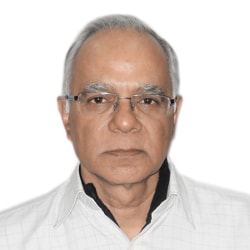
Keshav Jaini
Keshav Jaini is an outdoor enthusiast, and owns a company providing outdoor equipment and running adventure trips specialising in Aerosports. His love for the outdoors and nature guided him towards finding ways to protect the planet and to help regenerate it. He has done presentations and workshops related to direct solar use, as welle as cooking, food drying, water management, waste segregation and composting for schools, communities, groups of individual. He attended the United Nations PREPCOM IV for World Summit for Sustainable Development in Bali, Indonesia in 2002 as a representant of solar cookers international (USA). Keshav has done his Permaculture course with Mr Rico Zook in 2016, in Darjeeling. Since then, he systematically incorporates permaculture in his plans in order to bring positive environment friendly practices. He implemented many projects in his community Garden Estate using permaculture principles. He now shares his learnings with other communities to help them become environment friendly.
Presented "Transforming urban communities with permaculture - Garden Estate, a case study" : Presentation
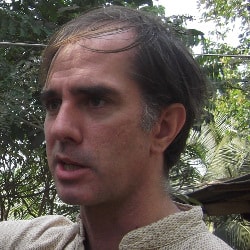
Michael B. Commons
Michael B. Commons has been living in Thailand over 15 years working primarily to build the capacity of farmers organizations, NGOs, and social entrepreneurs from South and Southeast Asia in the areas of organic rice production, guarantee systems, supply chain quality management, fair trade marketing, and climate change resilience capacity while practicing “Wanakaset” with his family in Chachoengsao, Thailand. He has been active in the Thai Permaculture community and helped to coordinate the 3rd Thailand Permaculture Convergence at Wanakaset Learning Center not far from his home. He is active in the area of Agricultural Biodiversity and a member of the Agricultural Biodiversity Community steering council and now is engaging more to support what is being termed “Regenerative Agriculture” though facilitating collaborative partnerships between farmers' groups, buyer/ distributors, and other supporting actors.
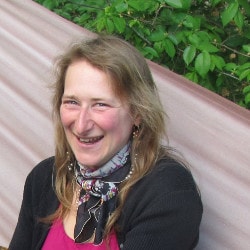
Julia Schindler
Julia Schindler did her first PDC with Robyn Francis in 2010 while studying for her master’s degree in agronomy in France. As an ever curious person, she has since always sought to further her knowledge and experience in the fields of sustainable farming practices, wild edibles and plant medicine, project management, group dynamics, alternative education, yoga and aikido, personal development and spirituality. That is what brought her to attend several convergences, conferences and seminars on these topics, work in America for a permaculture landscaping company, get involved in many activist groups in France, work as a wwoofer on permaculture farms across Europe and Australia (including David Holmgren's farm), be an assistant teacher for 2 PDCs in France and applying permaculture principles as much as possible in her everyday life, including contraception! It is on this latter matter that she would like to share her experience at the IPC.
Presented "The Symptothermal method: the key to cultivating your secret garden" : Presentation

 Aranya Agricultural Alternatives
Aranya Agricultural Alternatives